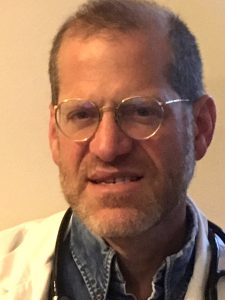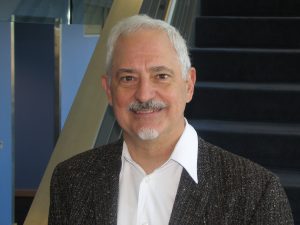The Psychiatry Grand Rounds program is designed to educate faculty and trainees, as well as Madison area professionals and members of the public, and to foster opportunities for collaboration. Every two months, a distinguished guest speaker is invited to give a lecture, facilitate discussions, meet with faculty and trainees, and form valuable connections with members of the department.
Grand Rounds are open to the public and anyone is welcome to attend. Continuing Education credits are available to attendees. See below for more information on accreditation.
If you have suggestions for future speakers, topics, or general feedback for the Grand Rounds committee, please contact Jennifer Noll. We appreciate your input!
– Save the Dates –
April 19, 2024: Chiara Cirelli, MD, PhD
June 21, 2024: Jeff Lyness, MD
August 16, 2024: TBA
October 25, 2024: Louise Hawkley, PhD
December 13, 2024: TBA
April 19 @ 12:00 pm – 1:15 pm
WisPIC Commons Room
6001 Research Park Blvd in Madison, WI
+ Virtual Event – via WebEx
Chiara Cirelli, MD, PhD
“The Burden of Wake and the Reasons for Sleep”
Learning Objectives:
At the end of the talk, the audience will be able to:
- Identify the reason why sleep is especially beneficial for the brain and, vice versa, why sleep loss impairs cognition.
- Describe the mechanism by which the use of the brain during the day leads to the need to sleep at night.
Reading List:
About the Speaker:

Chiara Cirelli received her medical degree and Ph.D. in Neuroscience from the University of Pisa, Italy, where she began her investigation of the molecular correlates of sleep and wakefulness and the role of the noradrenergic system in sleep regulation. She continued this work at the Neuroscience Institute in San Diego, California as a fellow in experimental neuroscience, and subsequently at the University of Wisconsin–Madison, where she has been a Professor in the Department of Psychiatry since 2001.
Dr. Cirelli’s research is aimed at investigating the fundamental mechanisms of sleep regulation by using a combination of molecular and genetic approaches. By performing whole-genome expression profiling studies in different species her laboratory has characterized hundreds of genes whose expression changes in neurons and glial cells in sleep relative to wakefulness. This analysis has identified specific cellular processes that are favored by sleep and impaired by sleep deprivation. In a second, complementary approach Dr. Cirelli’s laboratory has been performing a large-scale mutagenesis screening for sleep phenotypes in Drosophila. Several mutant fly lines that have much reduced sleep or are resistant to sleep deprivation have been found. The characterization of the genes mutated in these lines has identified key cellular pathways involved in the regulatory mechanisms of sleep and its functional consequences. Overall, these molecular and genetic studies have shown that sleep need is strongly related to experience-dependent plasticity during wake.
Together with her long-term collaborator, Dr. Giulio Tononi, Dr. Cirelli has developed a comprehensive hypothesis about the function of sleep, the synaptic homeostasis hypothesis, according to which sleep serves to renormalize synaptic strength, counterbalancing a net increase of synaptic strength due to plasticity during wakefulness. Without sleep, such progressive increase in synaptic strength would lead to unsustainable costs in terms of energy, space and cellular supplies, would reduce the informativeness of neuronal signals, and would prevent further learning by bringing stronger synapses closer to their level of saturation. In short, according to this hypothesis sleep is the price to pay for brain plasticity during wakefulness.
The synaptic homeostasis hypothesis is being tested at different levels, using electrophysiological and behavioral experiments in humans, in vitro studies in cortical slices, electron microscopy experiments in flies and mice, and fMRI and DTI experiments in humans. Overall, these experiments confirm that wake is associated with net synaptic potentiation, whereas sleep favors global synaptic renormalization, thereby helping to preserve an overall balance of synaptic strength. Current experiments in transgenic flies and mice use confocal and repeated in vivo two-photon microscopy and block-face scanning electron microscopy to confirm that an essential function of sleep is to promote a homeostatic reduction in synaptic strength. Other experiments are also testing whether lack of sleep, especially during adolescence, may have long-term consequences for the functional and anatomical connectivity of the brain.
Webex Info:
Accreditation Statements

In support of improving patient care, the University of Wisconsin–Madison ICEP is jointly accredited by the Accreditation Council for Continuing Medical Education (ACCME), the Accreditation Council for Pharmacy Education (ACPE), and the American Nurses Credentialing Center (ANCC) to provide continuing education for the healthcare team.
Credit Designation Statements
American Medical Association (AMA)
The University of Wisconsin–Madison ICEP designates this live activity for a maximum of 1.25 AMA PRA Category 1 Credits™. Physicians should claim only the credit commensurate with the extent of their participation in the activity.
American Nurses Credentialing Center (ANCC)
The University of Wisconsin–Madison ICEP designates this live activity for a maximum of 1.0 ANCC contact hours.
American Psychological Association (APA)

Continuing Education (CE) credits for psychologists are provided through the co-sponsorship of the American Psychological Association (APA) Office of Continuing Education in Psychology (CEP). The APA CEP Office maintains responsibility for the content of the programs.
Continuing Education Units
The University of Wisconsin–Madison ICEP, as a member of the University Professional & Continuing Education Association (UPCEA), authorizes this program for 0.125 continuing education units (CEUs) or 1.25 hours.
ARCHIVE
This is an accordion element with a series of buttons that open and close related content panels.
Virginia Medinilla, MD, PhD | Addressing Barriers to Integrated Treatment of Co-Occurring Psychiatric and Substance Use Disorders at UW Behavioral Health
February 16 @ 12:00 pm – 1:15 pm
WisPIC Commons Room
6001 Research Park Blvd in Madison, WI
+ Virtual Event – via WebEx
Virginia Medinilla, MD, PhD
Bridging The Great Divide: Addressing Barriers to Integrated Treatment of Co-Occurring Psychiatric and Substance Use Disorders at UW Behavioral Health
Learning Objectives:
As a result of this program, participants will be able to:
- Appreciate the existing gaps in the care of individuals with co-occurring mental health and substance use disorders at the national level and at UW Behavioral Health
- Compare different models for co-occurring disorder treatment and identify core features of integrated treatment
- Make use of available resources to improve their capacity to provide integrated care for patients with co-occurring disorders
Reading List:
- Substance Use Disorder Treatment for People With Co-Occurring Disorders (SAMHSA)
- Treatment for Substance Use Disorder With Co-Occurring Mental Illness
- Priority Actions to Improve the Care of Persons with Co-occurring Substance Abuse and Other Mental Disorders: A Call to Action
- Integrated Treatment of Substance Use and Psychiatric Disorders
About the Speaker:

Virginia Medinilla, MD, PhD, is an Addiction Psychiatrist and Assistant Professor in the Department of Psychiatry at the University of Wisconsin School of Medicine and Public Health.
Dr. Medinilla received her undergraduate degree in Biotechnology and Molecular Genetics from Universidad Nacional de Quilmes in Buenos Aires, Argentina. She then moved to the United States to attend graduate school at LSU in New Orleans, where she earned her PhD in Neuroscience followed by her MD and Adult Psychiatry Residency training.
During her time in New Orleans, Dr. Medinilla spent significant time training at a Level I Trauma Center as well as at the largest substance abuse treatment center in the state of Louisiana, where she experienced first-hand the devastating effects that addictions can have on individuals and their communities.
In 2022, Dr. Medinilla moved to Madison, WI, to pursue an Addiction Psychiatry Fellowship at the University of Wisconsin-Madison before joining the Department of Psychiatry as faculty in 2023.
Dr. Medinilla is board certified by the American Board of Psychiatry and Neurology (ABPN) and is an active member of the American Academy of Addiction Psychiatry (AAAP), as well as the Wisconsin state chapters of the American Society for Addiction Medicine (ASAM/WISAM) and the American Psychiatric Association (APA/WPA).
Dr. Medinilla enjoys working with individuals at different stages of their recovery journeys. She takes an individualized approach to treatment and is experienced in the use of both pharmacological and non-pharmacological methods, often in combination. As a bilingual provider, Dr. Medinilla is proud to serve the local Spanish- as well as English-speaking community.
Dr. Medinilla’s current research, conducted in collaboration with researchers at the University of Wisconsin-Madison Center for Healthy Minds, focuses on the use of meditation and other contemplative approaches for the understanding and treatment of psychiatric illnesses, particularly substance use and other addictive disorders. Dr. Medinilla is also passionate about the integration of substance use disorder treatment within general psychiatry practice and during her fellowship was the recipient of an award from the National Institute on Drug Abuse (NIDA) to disseminate evidence-based information related to the treatment of co-occurring disorders.
CV – Virginia Medinilla, MD, PhD
WebEx Info:
David Mintz, MD | "The Science of the Art of Pharmacotherapy"
December 15 @ 12:00 pm – 1:15 pm
WisPIC Commons Room
6001 Research Park Blvd in Madison, WI
+ Virtual Event – via WebEx
David Mintz, MD
The Science of the Art of Pharmacotherapy
Description:
In this era of evidence-based psychiatric practice, it is important to recognize that there are evidence bases, too often overlooked, that provide guidance not about what to prescribe to optimize pharmacotherapy outcomes, but, rather, about how to prescribe. Indeed, for some of the most common conditions, the evidence suggests that psychosocial factors exert a larger influence on treatment outcome than do the actual medications. Mastery of these psychosocial factors in prescribing constitutes an important part of the art of psychopharmacology. In this presentation, some of that evidence base will be explored, addressing the science of the art of psychopharmacology. The importance of the doctor-patient relationship will be highlighted, as well as the importance of a patient-centered evaluation that considers who the patient is, and not just what the patient is in diagnostic terms. The presenter will explore how a deeper understanding of the patient may help guide prescribing decisions in ways that facilitate the patient’s healthy use of treatment.
Learning Objectives:
At the conclusion of this session, the participant should be able to:
- Explain how psychosocial/interpersonal factors influence pharmacotherapy outcomes
- Develop more patient-centered alliances supporting patient’s abilities to make healthy use of medications
- Increase biopsychosocial integration across the treatment team.
Reading List:
- Mintz, D. L., & Flynn, D. F. (2012). How (not what) to prescribe: nonpharmacologic aspects of psychopharmacology. Psychiatric Clinics, 35(1), 143-163.
- Mintz, D (2022). Psychodynamic Psychopharmacology: Caring for the Treatment-Resistant Patient, American Psychiatric Publishing, Washington DC.
- Mintz, D (2022). Combining Medications and Psychotherapy. In Gabbard G (Ed.) Psychotherapeutic Treatments, American Psychiatric Publishing, Washington DC.
- Mintz, D & Bayeva, M (2023). “Supervising the Integration of Medication and Psychotherapy” in Kennedy, K., Weldon, R., & Yeomans, F. (Eds.), Supervising Individual Psychotherapy: The Guide to Good Enough, American Psychiatric Publishing, Washington DC.
About the Speaker:
David Mintz, M.D. is the Director of Psychiatric Education, Associate Director of Training, and Team Leader at the Austen Riggs Center in Stockbridge, Massachusetts, a psychodynamic tertiary care center, specializing in the treatment of patients who are complex, co-morbid, and treatment refractory. To address the treatment needs of these patients, Dr. Mintz and colleagues developed a psychodynamically-informed, patient-centred model for addressing psychological and interpersonal interferences with the patient’s healthy use of pharmacotherapy. His book Psychodynamic Psychopharmacology: Caring for the Treatment-Resistant Patient, and dozens of other publications, explore these principles. Among other things, Dr. Mintz is also the recent past Leader of the Psychotherapy Caucus of the American Psychiatric Association.
David L. Perez MD, MMSc, FAAN, FANPA | "The Neuropsychiatry of Functional Neurological Disorder"
Friday October 20
12:00 pm – 1:15 pm
Virtual Event – via WebEx
David L. Perez MD, MMSc, FAAN, FANPA
The Neuropsychiatry of Functional Neurological Disorder
Learning Objectives:
- Identify the physical examination signs that rule in a diagnosis of functional neurological disorder
- Identify the up-to-date approach on how to communication with patients about a diagnosis of functional neurological disorder
- Identify the up-to-date multidisciplinary approach to the treatment of functional neurological disorder
Reading List:
- Perez, D. L., Hoch, D. B., & Cohen, J. N. (2023). Case 10-2023: A 27-Year-Old Man with Convulsions. The New England journal of medicine, 388(13), 1210–1218.
- Aybek, S., & Perez, D. L. (2022). Diagnosis and management of functional neurological disorder. BMJ (Clinical research ed.), 376, o64.
- Bègue, I., Nicholson, T. R., Kozlowska, K., LaFrance, W. C., Levenson, J. L., Rapaport, M. H., Carson, A. J., & Perez, D. L. (2021). Psychiatry’s modern role in functional neurological disorder: join the renaissance. Psychological medicine, 51(12), 1961–1963.
About the Speaker:

David L. Perez M.D., M.M.S.c. is a faculty member in the Departments of Neurology and Psychiatry at the Massachusetts General Hospital. Dr. Perez is the director of the Functional Neurological Disorders Clinic based within the Cognitive Behavioral Neurology Unit and closely affiliated with the Neuropsychiatry Unit at the Massachusetts General Hospital. In the MGH Functional Neurological Disorders Clinic, Dr. Perez provides specialized, integrated neurologic and psychiatric consultations for patients experiencing motor Functional Neurological Disorders, including individuals with Psychogenic Nonepileptic Seizures, Functional Movement Disorders, and Functional Limb Weakness.
Dr. Perez is also the director of the MGH Functional Neurology Research Group, which is dedicated to the comprehensive clinical and neurobiological investigation of motor Functional Neurological Disorders. The laboratory uses advanced structural and functional magnetic resonance imaging (MRI) techniques to investigate biomarkers of symptom severity, disease-risk, subtype and prognosis across individuals with Psychogenic Nonepileptic Seizures, Functional Movement Disorders and Functional Limb Weakness.
Dr. Perez is a dual trained and board certified neurologist-psychiatrist, and is a member of the Cognitive Behavioral Neurology, Frontotemporal/Memory Disorders and Neuropsychiatry Units at Massachusetts General Hospital.
Donte Bernard, Ph.D. | "We Can’t Talk About ACE Without Race: Recognizing & Responding to Adverse Childhood Experiences among Black Youth"
Friday August 18
12:00 – 1:15pm
Virtual Event – via WebEx
Donte Bernard, Ph.D.
“We Can’t Talk About ACE Without Race:
Recognizing & Responding to Adverse Childhood Experiences among Black Youth”
Adverse childhood experiences (ACEs) have become an increasingly popular area of focus among clinical and medical health professionals. This seminar will provide an overview of the ACEs framework, discuss structural drivers that contribute to racial disparities in ACE exposure, and the health implications of these disparities, particularly within the Black/African American community.
Learning Objectives:
-
- Define adverse childhood experiences and their health consequences
- Develop awareness of disparities that exist in ACE exposure
- Identify how racism can serve as an adverse childhood experience
Reading List:
- Racial discrimination and other adverse childhood experiences as risk factors for internalizingmental health concerns among Black youth
- Making the “C-ACE” for a Culturally-Informed Adverse Childhood Experiences Framework to Understand the Pervasive Mental Health Impact of Racism on Black Youth
About the Speaker:
 Dr. Donte Bernard is a licensed clinical psychologists and Assistant Professor in the Department of Psychological Sciences at the University of Missouri. He earned his PhD in Clinical Psychology with a child and family emphasis at the University of North Carolina at Chapel Hill and completed an APA accredited internship at the University of Miami Mailman Center for Child Development. Following his doctoral training, Dr. Bernard completed a NIMH-funded T-32 Postdoctoral Fellowship, specializing in traumatic stress, at the National Crime Victims Research and Treatment Center at the Medical University of South Carolina.
Dr. Donte Bernard is a licensed clinical psychologists and Assistant Professor in the Department of Psychological Sciences at the University of Missouri. He earned his PhD in Clinical Psychology with a child and family emphasis at the University of North Carolina at Chapel Hill and completed an APA accredited internship at the University of Miami Mailman Center for Child Development. Following his doctoral training, Dr. Bernard completed a NIMH-funded T-32 Postdoctoral Fellowship, specializing in traumatic stress, at the National Crime Victims Research and Treatment Center at the Medical University of South Carolina.
WebEx Info:
Date and time:
Friday, August 18, 2023 12:00 PM | (UTC-05:00) Central Time (US & Canada)
Join link:
https://uwmadison.webex.com/uwmadison/j.php?MTID=mef68690dd2971885098e50edc22afd70
Webinar number:
2624 866 6351
Webinar password:
DONTE (36683 from phones and video systems)
Join by phone:
+1-415-655-0001 US Toll
+1-312-535-8110 United States Toll (Chicago)
Access code: 262 486 66351
Patrick Corrigan, PsyD | "Beating the Stigma of Mental Illness"
Friday June 16 12:00 – 1:15pm
WisPIC Commons Room
6001 Research Park Blvd in Madison, WI
+ Virtual Event – via WebEx
Patrick Corrigan, PsyD | UW Psychiatry Grand Rounds
“Beating the Stigma of Mental Illness”
The stigma of mental illness significantly worsens the course of serious disorders. This presentation will review different types of stigma – public stigma, self-stigma, label avoidance – and specific harmful results. We will then review effective ways to challenge them which, by the way, largely do NOT reside in education, but more in contact with people in recovery.
Learning Objectives:
1. Define the three types of stigma related to substance use disorder (SUD).
2. Describe the three sets of harmful effects wrought by stigma.
3. Put together a program that will diminish the harmful effects of SUD stigma.
Reading List:
- Corrigan, P.W., Talluri, S.S., & Shah, B. (2022). Formal peer-support services that address priorities of people with psychiatric disabilities: A systematic review. American Psychologist, 77(9), 1104-1116.
- Corrigan, P. W., Kundert, C., & Laique, A. (2021). The impact of contact and fame on changing the public stigma of mental illness. Community Mental Health Journal. Advance online publication.
- Corrigan, P.W., Druss, B.G., & Perlick, D.A. (2014). The impact of mental illness stigma on seeking and participating in mental health care. Psychological Science in the Public Interest, 15, 37-70.
About the Speaker:
 Patrick Corrigan is Distinguished Professor of Psychology at the Illinois Institute of Tech-nology. Prior to that, Corrigan was Professor of Psychiatry and Executive Director of the University of Chicago Center for Psychiatric Rehabilitation. Corrigan has worked most of his 30-year career in providing and evaluating services for people with psychiatric disabil-ities with special focus on the impact of health equity. Realizing that the benefits of psy-chiatric services are limited by stigma, he has spent the past two decades broadening his research to the prejudice and discrimination of mental illness. His work has been support-ed by NIH and PCORI for most of that time to, among other things, develop and lead the National Consortium on Stigma and Empowerment (www.NCSE1.org). This led to devel-opment of the Honest, Open, Proud program to erase the stigma of mental illness (www. honestopenproudprogram.org). Corrigan also extended his research to mental health AND social determinants (e.g., ethnicity, religion, gender identity, sexual orientation, and age) and corresponding social disadvantage related to poverty, criminal justice involve-ment, and immigration concerns resulting in the Chicago Health Disparities Center (www. chicagoheatlhdispariteis.org) . Corrigan has authored more than 450 journal articles and 20 books. He is also editor of Stigma and Health, an APA journal.
Patrick Corrigan is Distinguished Professor of Psychology at the Illinois Institute of Tech-nology. Prior to that, Corrigan was Professor of Psychiatry and Executive Director of the University of Chicago Center for Psychiatric Rehabilitation. Corrigan has worked most of his 30-year career in providing and evaluating services for people with psychiatric disabil-ities with special focus on the impact of health equity. Realizing that the benefits of psy-chiatric services are limited by stigma, he has spent the past two decades broadening his research to the prejudice and discrimination of mental illness. His work has been support-ed by NIH and PCORI for most of that time to, among other things, develop and lead the National Consortium on Stigma and Empowerment (www.NCSE1.org). This led to devel-opment of the Honest, Open, Proud program to erase the stigma of mental illness (www. honestopenproudprogram.org). Corrigan also extended his research to mental health AND social determinants (e.g., ethnicity, religion, gender identity, sexual orientation, and age) and corresponding social disadvantage related to poverty, criminal justice involve-ment, and immigration concerns resulting in the Chicago Health Disparities Center (www. chicagoheatlhdispariteis.org) . Corrigan has authored more than 450 journal articles and 20 books. He is also editor of Stigma and Health, an APA journal.
Webex Info:
Join link: https://uwmadison.webex.com/uwmadison/j.php?MTID=md1f9bfed6d6e6a3efdd4837656c624de
Webinar number: 2624 363 0677
Webinar password: 61623 (61623 from phones and video systems)
Join by phone
+1-415-655-0001 US Toll
+1-312-535-8110 United States Toll (Chicago)
Access code: 262 436 30677
Arpana "Annie" Gupta, PhD | "Obese and Addicted to Food: Is the Brain or the Gut Microbiome to Blame?"
Friday April 28
WisPIC Commons Room
6001 Research Park Blvd in Madison, WI
+ Virtual Event – via WebEx
Arpana “Annie” Gupta, PhD | UW Psychiatry Grand Rounds
“Obese and Addicted to Food: Is the Brain or the Gut Microbiome to Blame?”
Learning Objectives:
- Investigate how novel pathways related to the brain-gut-microbiome (BGM) system may explain modulation of signals from the gut-microbiome on the brain via systemic immune activation.
- Explain how risk factors associated with socio-cultural and environmental stressors “get under the skin” and are embedded in biology
- Identify subgroup differences (e.g., race and sex) related to obesity and eating behaviors
- Model longitudinal patterns and changes across the lifespan as they relate to obesity in order to help predict risk factors leading up to the development of obesity while being able to identify prognostic markers.
- Determine changes associated with various interventions (e.g., brain-targeted such as cognitive behavioral therapy, or gut-based such as specific diets) directed at altered ingestive behaviors and obesity.
Reading List:
- Brain scans show how different factors can influence obesity in men and women
- How can we use probiotics to treat various conditions via the brain-gut system?
About the Speaker:
 I am an Associate Professor, and Co-Director of the Goodman-Luskin Microbiome Center (GLMC) at UCLA. I am also the Director of the Obesity and Ingestive Behavior Research Program and Director of Neuroimaging Core within the GLMC; where I specialize in research that investigates the interactions between environmental and biological factors in shaping phenotypes associated with obesity. My current program of research, broadly defined, is based on developing a model that aims to understand the bidirectional interaction of the brain with those in the periphery (immune cells, gut microbiota-related metabolites), and the modification of these interactions by vulnerability factors (e.g., discrimination, adverse life events, sex, race, socioeconomic status) in obesity. Another main area of interest is the investigation of race and sex differences in central responses to stress, as well as the relationship between altered ingestive behaviors, obesity, anxiety and depression.
I am an Associate Professor, and Co-Director of the Goodman-Luskin Microbiome Center (GLMC) at UCLA. I am also the Director of the Obesity and Ingestive Behavior Research Program and Director of Neuroimaging Core within the GLMC; where I specialize in research that investigates the interactions between environmental and biological factors in shaping phenotypes associated with obesity. My current program of research, broadly defined, is based on developing a model that aims to understand the bidirectional interaction of the brain with those in the periphery (immune cells, gut microbiota-related metabolites), and the modification of these interactions by vulnerability factors (e.g., discrimination, adverse life events, sex, race, socioeconomic status) in obesity. Another main area of interest is the investigation of race and sex differences in central responses to stress, as well as the relationship between altered ingestive behaviors, obesity, anxiety and depression.
Holly Swartz, MD | "Psychosocial Interventions for Bipolar Disorder"
Friday March 24
WisPIC Commons Room
6001 Research Park Blvd in Madison, WI
+ Virtual Event – via WebEx
Holly Swartz, MD | UW Psychiatry Grand Rounds
“Psychosocial Interventions for Bipolar Disorder”
Talk Description:
Dr. Swartz’s research focuses on understanding and optimizing psychosocial interventions for mood disorders. In this talk, she will highlight the role of psychotherapy in the management of bipolar disorders, paying special attention to studies of Interpersonal and Social Rhythm Therapy (IPSRT), a chronotherapeutic behavioral intervention with demonstrated efficacy for bipolar disorder.
Learning Objectives:
- Identify evidence-based psychosocial strategies for bipolar disorders
- Discuss the role of psychosocial interventions as part of a comprehensive, healthcare team-based approach to supporting individuals living with bipolar disorders
- Describe key principles of Interpersonal and Social Rhythm Therapy
Reading List:
About the Speaker:
 Holly A. Swartz is Professor of Psychiatry at the University of Pittsburgh School of Medicine. She received her undergraduate degree from Harvard College, medical degree from Albert Einstein College of Medicine, and completed her psychiatric residency training at New York Hospital / Cornell University School of Medicine. Dr. Swartz’s research focuses on understanding and optimizing psychosocial interventions for mood disorders. She is well known for her work evaluating Interpersonal Psychotherapy (IPT) and Interpersonal and Social Rhythm Therapy (IPSRT) as treatments for depression and bipolar disorder. Her research focuses on IPT in the management of maternal depression, both in the perinatal period and in the context of high-risk families with psychiatrically ill offspring, and on the role of IPSRT and pharmacotherapy in the management of bipolar II depression. She is engaged in collaborative projects to develop computational frameworks to model dyadic interpersonal behaviors in relation to psychotherapy process and outcomes and to understand neural correlates of change in chronotherapeutic behavioral interventions. Her research has been funded by the National Institute of Health, National Science Foundation, and the Brain and Behavior Research Foundation.
Holly A. Swartz is Professor of Psychiatry at the University of Pittsburgh School of Medicine. She received her undergraduate degree from Harvard College, medical degree from Albert Einstein College of Medicine, and completed her psychiatric residency training at New York Hospital / Cornell University School of Medicine. Dr. Swartz’s research focuses on understanding and optimizing psychosocial interventions for mood disorders. She is well known for her work evaluating Interpersonal Psychotherapy (IPT) and Interpersonal and Social Rhythm Therapy (IPSRT) as treatments for depression and bipolar disorder. Her research focuses on IPT in the management of maternal depression, both in the perinatal period and in the context of high-risk families with psychiatrically ill offspring, and on the role of IPSRT and pharmacotherapy in the management of bipolar II depression. She is engaged in collaborative projects to develop computational frameworks to model dyadic interpersonal behaviors in relation to psychotherapy process and outcomes and to understand neural correlates of change in chronotherapeutic behavioral interventions. Her research has been funded by the National Institute of Health, National Science Foundation, and the Brain and Behavior Research Foundation.
Dr. Swartz is actively engaged in teaching, mentoring, and patient care. A certified IPT and IPSRT trainer and supervisor, she has taught these therapies to thousands of clinicians across the globe. Dr. Swartz has held elected leadership positions for national and international professional organizations, including serving as President of the International Society for Interpersonal Psychotherapy (ISIPT ; 2015-17), Treasurer of the International Society of Bipolar Disorders (ISBD ; 2018-2024), and Board Member of the American Society of Clinical Psychopharmacology (ASCP ; 2021-2029). She is the 2018 recipient of the Depression and Bipolar Association (DBSA) Gerald L. Kleman Senior Investigator Award in recognition of outstanding research contributing to the understanding, causes, diagnosis, and treatment of mood disorders. She is the author of over 100 publications, co-author of Bipolar II Disorder: Recognition, Understanding and Treatment (American Psychiatric Association Publishing, 2019), and Editor-in-Chief of the American Journal of Psychotherapy. She serves as a member of the Scientific Advisory Boards of DBSA and the International Bipolar Foundation.
Eraka Bath, MD | UW Psychiatry Greenfield "Justice, Equity, Diversity, and Inclusion (JEDI) Work and Leadership"
Friday February 10, 2023
WisPIC Commons Room
6001 Research Park Blvd in Madison, WI
+ Virtual Event – via WebEx
Eraka Bath, MD | UW Psychiatry Greenfield Lecture
“Justice, Equity, Diversity, and Inclusion (JEDI) Work and Leadership”
Talk Description:
This lecture will discuss the Justice, Equity, Diversity, an Inclusion (JEDI) initiative at the University of California, Los Angeles within the Department of Psychiatry and Behavioral Sciences. The goals of JEDI include increasing equity among underrepresented groups to improve the education, training, care, and clinical research within our diverse community.
Learning Objectives:
- Identify ways to better include minoritized and marginalized groups by focusing on an anti-racist and social justice framework
- Describe the importance of diversity and inclusion
- Identify the structural elements that impact the healthcare climate
Reading List:
- Psychiatry Diversity Leadership in Academic Medicine: Guidelines for Success
- Women in Academic Psychiatry: Inequities, Barriers, and Promising Solutions
- Doing the Work—or Not: The Promise and Limitations of Diversity, Equity, and Inclusion in US Medical Schools and Academic Medical Centers
About the Speaker:

Eraka Bath, M.D., is an Associate Professor in the Division of Child and Adolescent Psychiatry and the Vice Chair for Justice, Equity, Diversity and Inclusion at the UCLA Neuropsychiatric Institute in the David Geffen School of Medicine. She is board certified in child and adolescent, adult and forensic psychiatry. Dr. Bath obtained her undergraduate degree at UC Berkeley, her medical degree at Howard University College of Medicine and completed her general psychiatry training at Saint Vincents Hospital in Manhattan, an affiliate of New York Medical College. She completed her fellowships in child psychiatry and forensic psychiatry at the NYU School of Medicine where she was on the faculty prior to returning to California to join the faculty at UCLA.
Since joining the UCLA faculty in 2007, Dr. Bath has served as the Director of Child Forensic Services and the psychiatrist appointed to the Los Angeles County Juvenile Mental Health Court (JMHC). Dr. Bath has also developed partnerships with the Los Angeles County Juvenile Court system, providing consultation and training to the Juvenile Delinquency Court System and the Los Angeles County Department of Probation. Dr. Bath is also an attending psychiatrist to the Westside Regional Center, providing psychiatric treatment and assessment to individuals with intellectual disabilities, autism spectrum and developmental disorders across the life span.
Dr. Bath has a long-standing interest in health care disparities, minority and community mental health, with particular interest in the underserved populations of foster care and juvenile justice involved youth. Dr. Bath specializes in diagnostic assessment and forensic consultation with adolescents, with an emphasis on high-risk youth, including those with histories of trauma, child welfare and juvenile justice involvement. Dr. Bath’s portfolio of research has included funding from the National Institutes of Health, National Institutes of Drug Abuse, PCORI, and LA County Dept. of Probation. Research activities include family-based interventions for judicially involved youth and adapting emerging technologies to increase engagement in court-referred mental health and substance use treatment for youth impacted by commercial sexual exploitation.
Dr. Bath has served on the DGSOM Diversity Oversight Committee as well as the Psychiatry Diversity Interest Group. Over the last decade, she has been active in organized psychiatry and has served on several committees in the American Academy of Psychiatry and the Law, the American Psychiatric Association and the American Academy of Child and Adolescent Psychiatry (AACAP). She is currently the Co-Chair of the Children and Law Committee for AACAP.
Dr. Bath maintains a private practice focused on forensic consultation to attorneys and governmental agencies, on a variety of cases involving mental health and the law. These include but are not limited to the areas of, juvenile competency to stand trial, commercially sexually exploited youth, fitness and waiver to adult court, personal injury, PTSD, child maltreatment, education rights, risk management, termination of parental rights and child custody matters.
Aron Janssen, MD | "Transgender and Gender Diverse Youth: Complexities and Controversies”
Talk Description:
Transgender issues have never before received such mainstream attention. With the increased visibility has come a significant increase in scrutiny of the care for transgender and gender diverse youth, often with unanticipated negative consequences. Gender diverse children and adolescents are at high risk for family rejection, suicide, violence, HIV/AIDS, substance and alcohol use disorders, and homelessness. Their needs are complex and require a level of professional expertise to ensure safe, appropriate intervention, which meets current standards of care outlined in the World Professional Association for Transgender Health clinical guidelines. Primary Care, Mental Health Providers and Healthcare Systems play an important role within the continuum of care required for gender diverse individuals and their families. In this talk, we will review the current state of knowledge in assessment and care of gender diverse youth, the recent demographic changes in gender care, and the role of controversy in the state of care delivery.
Learning Objectives:
-
- Participants will be able to describe the developmental processes of gender identity development among transgender and gender diverse youth
- Participants will be able to identify the common psychiatric needs of gender diverse youth
- Participants will describe the current standards of care for the assessment and treatment of gender diverse
Reading List:
About the Speaker:
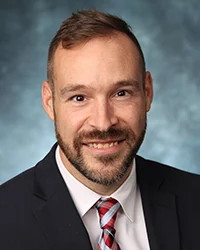 Aron Janssen, MD, is a clinical associate professor of child and adolescent psychiatry and Vice Chair of the Pritzker Department of Psychiatry and Behavioral Health at the Ann & Robert H. Lurie Children’s Hospital of Chicago, and the founder and formal clinical director of the Gender and Sexuality Service at NYU. Dr. Janssen’s areas of expertise include LGBTQ mental health, gender identity and sexual orientation development, suicide prevention, ADHD, anxiety and mood disorders, and psychopharmacology.
Aron Janssen, MD, is a clinical associate professor of child and adolescent psychiatry and Vice Chair of the Pritzker Department of Psychiatry and Behavioral Health at the Ann & Robert H. Lurie Children’s Hospital of Chicago, and the founder and formal clinical director of the Gender and Sexuality Service at NYU. Dr. Janssen’s areas of expertise include LGBTQ mental health, gender identity and sexual orientation development, suicide prevention, ADHD, anxiety and mood disorders, and psychopharmacology.
Dr. Janssen is a member of the American Academy of Child and Adolescent Psychiatry, American Psychiatric Association, and World Professional Association for Transgender Health. In addition, Dr. Janssen has widely published and presented on LGBTQ issues in medicine at locally, nationally and internationally, and on television and radio.
Panel Discussion: Disabilities and Mental Health Mari Magler, J.D. & Susan Miller Smedema, Ph.D., CRC, LPC
This will be an interactive panel presentation & discussion. We encourage you to email questions in advance to echewitt@wisc.edu
Articles:
Jour of Counseling Develop – 2011 – Livneh – Psychosocial Adaptation to Chronic Illness and Disability A Primer for
‘I Am Not The Doctor For You’: Physicians’ Attitudes About Caring For People With Disabilities
Patient and Coworker Mistreatment of Physicians With Disabilities
Learning Objectives:
• Examine disability history in the US and how the medical field has influenced disability frameworks
• Discuss the concepts of ableism, ableist language, and microaggressions experienced by disabled individuals in order to recognize and influence personal behavior
• Explain common psychological reactions to disability
• Select appropriate interventions to facilitate adaptation to disability
About the Speakers:
 Mari Magler, J.D., is the director of the McBurney Disability Resource Center at UW–Madison. She has worked in the field of disability and disability advocacy since 1994 and in higher education since 2005. Magler is passionate about disability justice, access and inclusion. She earned her Juris Doctor from Hamline University School of Law, and her bachelor’s in linguistics from Metropolitan State University. She co-authored “The Mentor’s Companion: A Practical Guide to Mentoring” and “A Plan for Mentorship of Educational Interpreters in Minnesota.”
Mari Magler, J.D., is the director of the McBurney Disability Resource Center at UW–Madison. She has worked in the field of disability and disability advocacy since 1994 and in higher education since 2005. Magler is passionate about disability justice, access and inclusion. She earned her Juris Doctor from Hamline University School of Law, and her bachelor’s in linguistics from Metropolitan State University. She co-authored “The Mentor’s Companion: A Practical Guide to Mentoring” and “A Plan for Mentorship of Educational Interpreters in Minnesota.”
 Susan Miller Smedema, Ph.D., CRC, LPC is a professor and current Chair in the Clinical Rehabilitation Counseling / Rehabilitation Counselor Education program at the University of Wisconsin –Madison. Prior to working at UW-Madison, she taught at Florida State University and the University of Northern Iowa. As of May, 2020, Dr. Smedema has published 48 peer-reviewed journal articles, written 9 book chapters, and presented 23 times at national conferences, including the National Council on Rehabilitation Education and the American Counseling Association’s annual conferences. She is a four-time winner of the American Rehabilitation Counseling Association Research Award, serves on the editorial board of Rehabilitation Counseling Bulletin, and is a board member for the National Council on Rehabilitation Education.
Susan Miller Smedema, Ph.D., CRC, LPC is a professor and current Chair in the Clinical Rehabilitation Counseling / Rehabilitation Counselor Education program at the University of Wisconsin –Madison. Prior to working at UW-Madison, she taught at Florida State University and the University of Northern Iowa. As of May, 2020, Dr. Smedema has published 48 peer-reviewed journal articles, written 9 book chapters, and presented 23 times at national conferences, including the National Council on Rehabilitation Education and the American Counseling Association’s annual conferences. She is a four-time winner of the American Rehabilitation Counseling Association Research Award, serves on the editorial board of Rehabilitation Counseling Bulletin, and is a board member for the National Council on Rehabilitation Education.
Heather Huang, MD & E. Vanessa Spearman-McCarthy, MD | "Navigating Social Injustices as Women of Color in Academic Medicine"
August 26 @ 12:00 PM-1:15 PM
Virtual Event – via WebEx
Heather Huang, MD & E. Vanessa Spearman-McCarthy, MD | UW Psychiatry Grand Rounds
Navigating Social Injustices as Women of Color in Academic Medicine
Talk Description:
The world and culture of academic medicine has changed significantly in the past few decades. Greater percentages of women enter, and graduate medical schools compared to men, and more women are completing residency training than ever before. Yet in the post-training world women have far less representation in the higher echelons of academic leadership such as Vice Chairs, Department Chairs, and Chief Medical Officers.
This presentation will illuminate key elements women physicians navigate as they enter and accelerate through academia. Dr. Vanessa Spearman-McCarthy will discuss the emotional impact that social and racial injustices may have on practicing physicians. Dr. Heather Huang will explore the role implicit bias plays in the formation of inequalities, as well as examine how certain racial stereotypes (of Asian Americans) might develop from those implicit biases. The end of the presentation will begin the conversation of how academic institutions can foster an environment of Equity and Inclusion for women physicians.
Learning Objectives:
- Describe how social injustices and racial trauma may impact a woman physician’s career in academia.
- Explore how implicit bias may impact a woman physician’s career in academia.
- Begin the conversation of “how do we move forward” in promoting Equity and Inclusion for a woman physician in academia
About the Speakers:

Dr. Heather Huang is a combined trained physician, double boarded in Internal Medicine and Psychiatry. She has additional training from the Chicago Institute for Psychoanalysis in their adult psychoanalytic psychotherapy program. Dr. Huang serves as the medical director for the UW Health Collaborative Care model, which integrates behavioral health services into primary care clinics. She is chair for several of the Department’s conferences, including the Educational Conference series and Women’s Mental Health conference. Dr. Huang is an active member in the Association of Medicine and Psychiatry, serving as the chair of the membership committee for 5 years and as a council member since 2011. She was awarded the prestigious Roger Kathol Pioneering Spirit Award in 2018, in recognition for her excellence in integrated care.

Dr. E. Vanessa Spearman-McCarthy is the Associate Dean for Learner, Diversity, and Inclusion as well as an Associate Professor with dual appointments in the departments of Internal Medicine and Psychiatry at Medical College of Georgia at Augusta University. Outside of Augusta University, she serves as the Chair of the Association of Medicine and Psychiatry Diversity, Equity, and Inclusion Committee as well as the Chair of the Health and Wellness Committee for the National Alumnae Association of Spelman College (NAASC).
Reading List:
How Structural Racism Works-Racist Policies as a Root Cause of U.S. Racial Health Inequities
When No One Sees You as Black: The Effect of Racial Violence on Black Trainees and Physicians
Sierra Carter, PhD | "Racial Trauma and Racial Health Disparities among Black American Populations: Examining Pathways to Healing, Collective Action, & Liberation"
July 15 @ 12:00 PM-1:15 PM
Hybrid Event – 6001 Research Park Blvd (WisPIC Commons) & via WebEx
Sierra Carter, PhD | UW Psychiatry Grand Rounds
Racial Trauma and Racial Health Disparities among Black American Populations: Examining Pathways to Healing, Collective Action, & Liberation
Talk Description:
The United States holds a historical legacy of oppression as well as a current sociopolitical climate of unrest due to the systemic perpetuation of injustice. Although there is a growing body of research literature on traditional conceptualizations of trauma in marginalized populations, there remains limited research that focuses on the confluence of racism and trauma in the lived experiences of these populations.
Research has demonstrated that racial discrimination is a significant and impactful contributing factor in accounting for racial disparities in mental and physical health across the life course. Within the racial discrimination literature, researchers have theorized about the extent to which experiences of racial discrimination can be viewed within the conceptualization of trauma as well as influence trauma symptoms (Bryant-Davis & Ocampo, 2005; Carter, 2007). Researchers further recognize the traumatic nature of experiences of racial discrimination and have demonstrated that these experiences can be associated with posttraumatic stress symptom reactions (Sibrava et al., 2019).
This talk will provide an overview of how Dr. Carter’s research has demonstrated the ways that racial discrimination impacts the health and well-being of Black Americans, a marginalized population that disproportionately experiences racial health disparities influenced by racism- related stress. This talk will also further elucidate the importance of examining racial discrimination in the conceptualization of trauma experiences and treatments.
Learning Objectives:
- Participants will be able to describe the importance of historical consciousness in understanding racism-related experiences (e.g., interpersonal, systemic/structural, & vicarious) and historical unjust legacies than can exacerbate current health disparities for Black Americans.
- Participants will be able to explain the unique challenges and clinical issues present in experiences of race-based stress and trauma among Black Americans.
- Participants will be able to identify potential avenues that can promote health equity and address the influence of racial discrimination on systems of engagement (e.g., the justice system & hospitals/healthcare).
 About the Speaker:
About the Speaker:
Dr. Carter’s research focuses on racial health disparities and investigates how psychosocial and contextual stressors can affect both mental and physical health outcomes for underrepresented populations. She has had a long-standing interest in the ways that health disparities in African American populations arise and are maintained by psychological, physiological, and contextual processes. A common theme throughout much of her work has been examining how, across a life course, racial discrimination as an acute and chronic stressor can effect development and further exacerbate chronic illnesses and stress-related disorders.
Dr. Carter integrates clinical, physiological, and biobehavioral measurements in her research to aid in improved identification of mechanisms that can be targeted in prevention and/or treatment efforts to reduce racial health disparities. Her research program also examines how racial and cultural characteristics (e.g., racial identity, Africentric worldview, racial composition of communities, and place-based factors) influence health. This work utilizes a risk and resilience framework to further illuminate what may buffer the psychological and physical health impacts of racial discrimination. Her research in the area of risk and resilience aims to enhance our ability to tackle troubling health disparities in underserved and underrepresented communities.
Reading List:
The effect of early discrimination on accelerated aging among African Americans (Carter 2019)
Matthew W. Johnson, PhD | "Psychedelics in the Treatment of Psychiatric Disorders"
May 13 @ 12:00 PM-1:15 PM
Hybrid Event – 6001 Research Park Blvd (WisPIC Commons) & via WebEx
Matthew W. Johnson, PhD | UW Psychiatry Grand Rounds
Psychedelics in the Treatment of Psychiatric Disorders
Talk Description:
This talk will review the behavioral pharmacology and treatment of substance use disorders with psilocybin and other classic psychedelics (5HT2A agonists). Early research from the 1950s to 1970s investigated classic psychedelics, primarily LSD, in the treatment of alcoholism and cancer-related distress. Over the last 20 years research has once again investigated psychedelics in the treatment of psychiatric disorders including substance use disorders, cancer-related distress, and depression. This talk will provide a current description of this work as well as a vision for the future.
Learning Objectives:
- Identify two “classic psychedelic” compounds
- Identify two forms of substance use disorder that are currently being investigated with regard to psychedelic therapy.
- Identify two risks of administering a psychedelic and that can be mitigated with appropriate safety guidelines
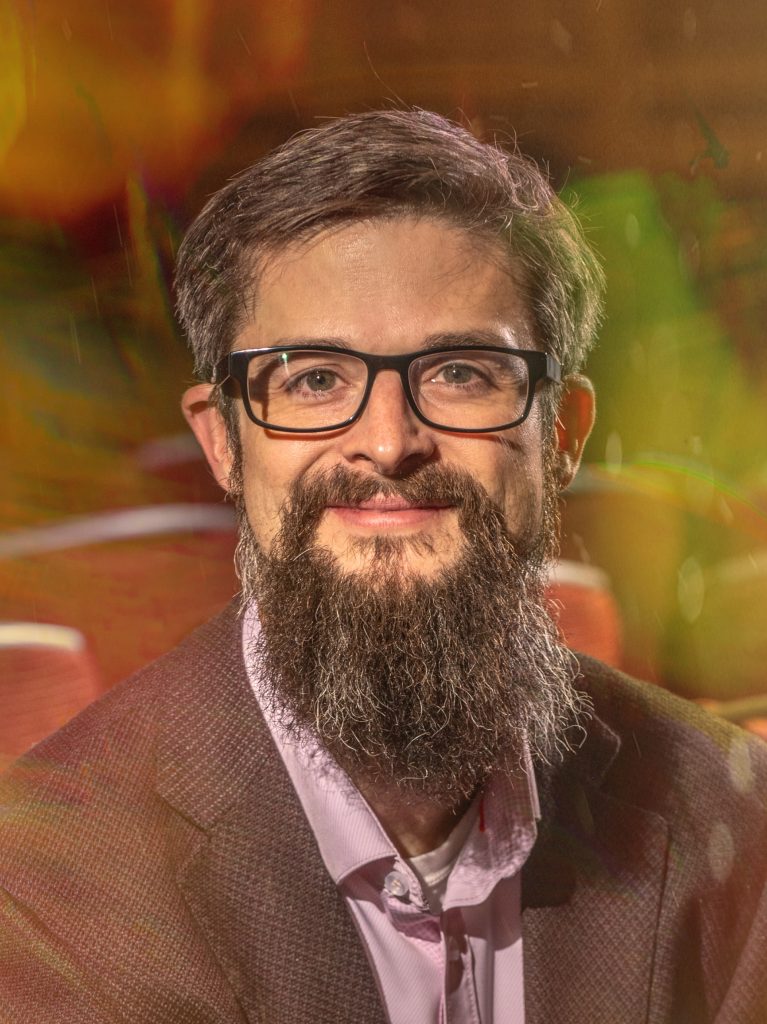 About the Speaker:
About the Speaker:
Matthew W. Johnson, Ph.D., is The Susan Hill Ward Endowed Professor of Psychedelics and Consciousness Research at Johns Hopkins. Working with psychedelics since 2004, he is one of the world’s most widely published experts on psychedelics. He has published research on psychedelics and mystical experience, personality change, tobacco smoking cessation, cancer distress treatment, and depression treatment. In 2021 he received as principal investigator the first grant in 50 years from the US government for a treatment study with a classic psychedelic, specifically psilocybin in treatment of tobacco addiction. He is also known for his expertise in behavioral economics, addiction, sexual risk behavior, and research with a wide variety of drug classes. He’s been Interviewed by Anderson Cooper on 60 Minutes, the New York Times, the Washington Post, the Wall Street Journal, CNN, NPR, Fox News, Fox Business News, BBC and was featured in Michael Pollan’s book How to Change Your Mind.
Reading List:
- Johnson Editorial International Review of Psychiatry 2018
- Johnson Richards Griff 2008 safety paper
- Johnson Smoking Cessation 2014
Accreditation Statement
In support of improving patient care, the University of Wisconsin-Madison ICEP is jointly accredited by the Accreditation Council for Continuing Medical Education (ACCME), the Accreditation Council for Pharmacy Education (ACPE), and the American Nurses Credentialing Center (ANCC) to provide continuing education for the healthcare team.
of improving patient care, the University of Wisconsin-Madison ICEP is jointly accredited by the Accreditation Council for Continuing Medical Education (ACCME), the Accreditation Council for Pharmacy Education (ACPE), and the American Nurses Credentialing Center (ANCC) to provide continuing education for the healthcare team.
Credit Designation Statements
American Medical Association (AMA)
The University of Wisconsin–Madison ICEP designates this live activity for a maximum of 1.25 AMA PRA Category 1 Credits™. Physicians should claim only the credit commensurate with the extent of their participation in the activity.
American Nurses Credentialing Center (ANCC)
The University of Wisconsin–Madison ICEP designates this live activity for a maximum of 1.0 ANCC contact hours.
American Psychological Association (APA)

Continuing Education (CE) credits for psychologists are provided through the co-sponsorship of the American Psychological Association (APA) Office of Continuing Education in Psychology (CEP). The APA CEP Office maintains responsibility for the content of the programs.
Continuing Education Units
The University of Wisconsin–Madison ICEP, as a member of the University Professional & Continuing Education Association (UPCEA), authorizes this program for 0.125 continuing education units (CEUs) or 1.25 hours.
Gregory Van Rybroek, PhD, JD | "Forensic Mental Health and the Law (and Mendota Mental Health Institute)"
March 25 @ 12:00 PM-1:15PM
Hybrid Event – 6001 Research Park Blvd (WisPIC Commons) & via WebEx
Gregory Van Rybroek, PhD, JD | UW Psychiatry Grand Rounds
Forensic Mental Health and the Law (and Mendota Mental Health Institute)
Talk Description:
The presentation will be a basic primer on forensic psychiatry and psychology topics; and on the mission and work carried out at Mendota Mental Health Institute, a secure state psychiatric hospital.
Learning Objectives:
- Explain key legal areas that deal with mental health topics – e.g., insanity, competency to stand trial, civil commitment, juveniles
- Summarize the history and current practice of the mental health work at Mendota Mental Health Institute
- Present the model of care for treatment of violent juveniles and expansion plans for the Mendota Juvenile Treatment Center
 About the Speaker:
About the Speaker:
Gregory J. Van Rybroek, PhD, JD, is the Director of the Mendota Mental Health Institute, a 350 bed state psychiatric hospital for forensic and civil patients, juveniles and also operates a large community support program (PACT). He received his PhD in Psychology and his JD from the University of Wisconsin-Madison. He is Adjunct Assistant Professor in Psychology, Clinical Assistant Professor in Psychiatry and Lecturer in Law at the University of Wisconsin-Madison. He also is a Clinical Professor in Psychiatry and Behavioral Medicine at the Medical College of Milwaukee. He regularly teaches courses related to clinical issues and the law in the UW-Madison psychology department and law school, and has conducted many presentations in clinical-legal areas. His publications and presentations primarily are in the area of clinical topics that intersect with legal issues, treatment of violent juveniles, work satisfaction and well-being. He also carries out consultations and forensic assessments for civil and criminal cases.
Annesa Flentje, PhD | "Understanding & Reducing Substance Use and Other Health Disparities Among Sexual & Gender Minority Individuals"
November 12 @ 12:00 PM – 1:15 PM
Via WebEx
UNDERSTANDING AND REDUCING SUBSTANCE USE AND OTHER HEALTH DISPARITIES AMONG SEXUAL AND GENDER MINORITY INDIVIDUALS
ANNESA FLENTJE, PHD
Talk Description:
Sexual and gender minority people are at increased risk for substance use disorders and other physical and mental health conditions, and minority stress is an underlying reason for these disparities. This lecture will describe what is known about minority stress and its relationship to the health of sexual and gender minority people and will explore the potential mechanisms of minority stress in impacting these health outcomes.
Learning Objectives:
1. Identify the components of minority stress and their impacts on the health of sexual and gender minority people.
2. Describe potential ways to improve the health of sexual and gender minority people across healthcare teams.
About the Speaker:
Annesa Flentje is an Associate Professor at the University of California, San Francisco in the Department of Community Health Systems, School of Nursing and at the Alliance Health Project within the Department of Psychiatry, School of Medicine. Dr. Flentje’s research has targeted multiple ways to reduce health disparities among sexual and gender minority people including prevention, increasing visibility in research, understanding the biological mechanisms of minority stress, and developing interventions to reduce minority stress. Dr. Flentje was an inaugural recipient of the 2018 National Institutes of Health Sexual and Gender Minority Investigator Award in recognition of contributions to sexual and gender minority health research. Dr. Flentje is also Associate Director and UCSF Site Director of The PRIDE Study, a prospective national longitudinal study of the health of sexual and gender minority individuals within the United States that has enrolled over 20,000 sexual and gender minority people to date. Dr. Flentje is the Director of the Center for Sexual and Gender Minority Health at UCSF.
Reading List:
Flentje et al. physical health min stress 2021
Flentje_Kober_Carrico_BBI_2018
FlentjeHeckBrennan Meyer 2019_Article_TheRelationshipBetweenMinority
Ruth Shim, MD, MPH | "Dismantling Structural Racism in Mental Health: Challenges and Opportunities"
October 21 @ 12:00 PM – 1:15 PM
WisPIC Commons Room
Dismantling Structural Racism in Mental Health: Challenges and Opportunities
RUTH S. SHIM, M.D., M.P.H.
Note: Dr. Shim will be delivering the Greenfield Memorial Lecture “Social (In)Justice and Mental Health” at the HF DeLuca Forum in the Discovery Building on Wed Oct 20 from 5:30-7:00pm.
Overview:
Structural racism is the main driver of mental health inequities and poor mental health outcomes, and yet, few understand the outsized role that structural racism plays in the identification, diagnosis, and management of mental illnesses and substance use disorders. This presentation will examine key concepts associated with structural racism, provide clear examples of how structural racism manifests in our mental health care system, and discuss strategies for dismantling structural racism in our communities and institutions.
Learning Objectives:
- Define key concepts associated with structural racism and community mental health
- Evaluate the evidence base of the impact of structural racism on behavioral health outcomes
- Identify solutions to dismantle structural racism in community mental health
About the Speaker:
 Dr. Ruth Shim is the Luke & Grace Kim Professor in Cultural Psychiatry and Professor of Clinical Psychiatry in the Department of Psychiatry and Behavioral Sciences at the University of California, Davis. She also serves as Associate Dean of Diverse and Inclusive Education at the University of California, Davis, School of Medicine.
Dr. Ruth Shim is the Luke & Grace Kim Professor in Cultural Psychiatry and Professor of Clinical Psychiatry in the Department of Psychiatry and Behavioral Sciences at the University of California, Davis. She also serves as Associate Dean of Diverse and Inclusive Education at the University of California, Davis, School of Medicine.
Dr. Shim serves on the editorial boards of JAMA Psychiatry, Psychiatric Services, Community Mental Health Journal, and American Psychiatric Publishing, and is co-editor of the books, The Social Determinants of Mental Health, and the recently published, Social (In)Justice and Mental Health. She is a former fellow of the Executive Leadership in Academic Medicine (ELAM) Program, and an at-large member of the National Academies of Sciences, Engineering, and Medicine Forum on Mental Health and Substance Use Disorders.
Dr. Shim received her MD from Emory University School of Medicine; her MPH in Health Policy from the Rollins School of Public Health, Emory University; and her BS in Psychology from the College of William & Mary.
Reading List:
Enrique W. Neblett, Jr., PhD | "Racism & Health Equity: Black Mental Health Matters"
October 15 @ 12:00 PM – 1:15 PM
Via WebEx
ENRIQUE W. NEBLETT, JR., PHD
RACISM AND HEALTH EQUITY: BLACK MENTAL HEALTH MATTERS
Overview:
This presentation will address the topic of racism and mental health, with a focus on Black American populations. I will introduce some of the most current and pressing challenges relevant to Black American mental health and describe current and future research incorporating biological perspectives and using a community-based participatory research (CBPR) approach.
Learning Objectives:
- Identify at least 3 current challenges impacting the mental health of Black Americans
- Name and describe at least 3 mechanisms by which racism impacts the mental health of Black Americans
- Identify 3 clinical strategies that may enhance current mental health interventions and outcomes for Black Americans experiencing poor mental health
About the Speaker:
 Enrique W. Neblett, Jr., PhD is a Professor of Health Behavior and Health Education at the University of Michigan School of Public Health and Associate Director of the Detroit Community-Academic Urban Research Center. Dr. Neblett is one of the leading U.S. scholars in the area of racism and health, with a particular focus on understanding how racism-related stress influences the mental and physical health of African American young people. In his newest line of research, he conducts community-based participatory research with an eye toward developing and implementing interventions, programs, and policies that can: 1) address the mental health consequences of individual, cultural, and structural racism; 2) improve health; and 3) promote health equity. Dr. Neblett’s research has been funded by the National Institutes of Health, the National Science Foundation, and the Robert Wood Johnson Foundation. He teaches courses on race, ethnicity, and mental health and population health determinants and disparities, and he serves on the Society for Research on Adolescence Executive Council and as an Associate Editor for Cultural Diversity & Ethnic Minority Psychology. In 2021, he was named the inaugural recipient of the National Institute of Mental Health James Jackson Memorial Award, and in 2017, he was awarded the Tanner Award for Excellence in Undergraduate Teaching and the Faculty Award for Excellence in Doctoral Mentoring. Dr. Neblett earned his Sc.B. from Brown University and his M.S. from The Pennsylvania State University. He earned his Ph.D. in Psychology from the University of Michigan in 2006.
Enrique W. Neblett, Jr., PhD is a Professor of Health Behavior and Health Education at the University of Michigan School of Public Health and Associate Director of the Detroit Community-Academic Urban Research Center. Dr. Neblett is one of the leading U.S. scholars in the area of racism and health, with a particular focus on understanding how racism-related stress influences the mental and physical health of African American young people. In his newest line of research, he conducts community-based participatory research with an eye toward developing and implementing interventions, programs, and policies that can: 1) address the mental health consequences of individual, cultural, and structural racism; 2) improve health; and 3) promote health equity. Dr. Neblett’s research has been funded by the National Institutes of Health, the National Science Foundation, and the Robert Wood Johnson Foundation. He teaches courses on race, ethnicity, and mental health and population health determinants and disparities, and he serves on the Society for Research on Adolescence Executive Council and as an Associate Editor for Cultural Diversity & Ethnic Minority Psychology. In 2021, he was named the inaugural recipient of the National Institute of Mental Health James Jackson Memorial Award, and in 2017, he was awarded the Tanner Award for Excellence in Undergraduate Teaching and the Faculty Award for Excellence in Doctoral Mentoring. Dr. Neblett earned his Sc.B. from Brown University and his M.S. from The Pennsylvania State University. He earned his Ph.D. in Psychology from the University of Michigan in 2006.
Reading List:
- Racism and Health: Challenges and Future Directions in Behavioral and Psychological Research
- Forms of Racial/Ethnic Discrimination and Suicidal Ideation: A Prospective Examination of African American and Latinx Youth
- The Influence of Internalized Racism on the Relationship Between Discrimination and Anxiety
- The Clarion Call of the COVID-19 Pandemic: How Medical Education Can Mitigate Racial and Ethnic Disparities
Angela Haeny, PhD | "APPLYING A SOCIAL JUSTICE LENS TO SUBSTANCE USE RESEARCH"
July 30 @ 12:00 PM – 1:15 PM
Via WebEx
APPLYING A SOCIAL JUSTICE LENS TO SUBSTANCE USE RESEARCH
Angela Haeny, PhD
Talk Description:
The objective of this talk is to discuss approaches for applying social justice to substance use research with a focus on racially/ethnically diverse populations. Specifically, the approaches that will be discussed include attending to measurement issues, constructs of particular salience to racially/ethnically diverse populations, and community engagement. Many of the examples provided will be based on my research aimed at improving substance use treatment retention, outcomes, and satisfaction among Black adults.
Learning Objectives:
1. Learn approaches for applying social justice to clinical care and research
2. Identify constructs salient to People of Color
3. Describe considerations for measures used in clinical care and research and evidence supporting their validity in racially/ethnically diverse populations
About the Speaker:
Dr. Angela Haeny is an Assistant Professor of Psychiatry at Yale School of Medicine and a licensed Clinical Psychologist with specialty in substance use disorders. She received her undergraduate degree in Psychology and Addiction Studies from the University of Minnesota, received her doctorate from the University of Missouri, completed her internship in Clinical and Community Psychology at Yale School of Medicine, and completed a NIDA T32 postdoctoral fellowship through the Division of Prevention and Community Research at Yale School of Medicine. Dr. Haeny is committed to eliminating racial disparities and enhancing diversity, equity, and inclusion, which cuts across all aspects of her work. Her research involves addressing race-related stress to improve drug and alcohol treatment outcomes among Black adults.
Reading List:
Josh Cisler, PhD | "LEARNING AND DECISION-MAKING IN PTSD"
FEBRUARY 26 @ 12:00 PM – 1:15 PM
Via WebEx
LEARNING AND DECISION-MAKING IN PTSD

Josh Cisler, PhD
Associate Professor of Psychiatry
University of Wisconsin-Madison
Neurocircuitry of Trauma and PTSD (NeuroTaP) Lab
Learning Objectives:
- Outline new models for understanding the psychopathology of PTSD
- Identify new approaches for enhancing extinction learning in PTSD across the healthcare team
Talk Description:
This presentation will discuss emerging research aimed at characterizing a dynamic model of psychopathology following trauma that emphasizes learning from and interacting with the environment. This presentation will include discussion of new methods for enhancing extinction learning in PTSD as a model for increasing exposure therapy efficacy. There are no financial conflicts of interest to disclose.
About the Speaker:
Dr. Josh Cisler received a doctorate in clinical psychology from the University of Arkansas, Fayetteville in 2010. He completed a clinical internship at the Medical University of South Carolina through the National Crime Victim Research and Treatment Center, where his research focused on understanding risk factors for psychopathology following trauma, with a particular focus on assaultive events (e.g., physical and sexual assault). He then completed a postdoctoral fellowship in the Brain Imaging Research Center at the University of Arkansas for Medical Sciences, where he received training in fMRI methodology and advanced computational approaches to imaging analysis. He was on the faculty of the Brain Imaging Research Center from 2012-2016, and joined the faculty of the Department of Psychiatry at the University of Wisconsin Madison in 2016.
Kiki D. Chang, MD | "PEDIATRIC BIPOLAR DISORDER: CLUES FOR EARLY IDENTIFICATION AND PREVENTION"
JANUARY 29 @ 12:00 PM – 1:15 PM
Via WebEx
PEDIATRIC BIPOLAR DISORDER:
CLUES FOR EARLY IDENTIFICATION AND PREVENTION
*** Part of the Briskey Family Bipolar Lecture Series ***

Kiki D. Chang, MD
Former Director of the Pediatric Bipolar Disorders Clinic
Stanford University School of Medicine, Division of Child Psychiatry
Learning Objectives:
- Accurately understand the early presentations of bipolar disorders in youth.
- Consider alternate diagnoses for youth with irritability and mood difficulties
- Discuss approaches to identifying and treating youth at high risk for bipolar disorder
Talk Description:
Bipolar disorder (BD) is a chronic, debilitating illness with a lifetime worldwide prevalence of 2.4% and more disability-adjusted life-years lost than major neurological conditions or cancer. Children with BD have a more severe course of illness with high relapse, recurrence, psychosocial impairment, substance use, and suicide at twice the rate of attempted suicides when compared to individuals with unipolar depression. Identification and recognition of symptoms that predate BD in youth would aid in early intervention and prevention efforts. This presentation will discuss the clinical presentation of early and fully developed BD in youth, and discuss early intervention efforts so far to treat youth with early forms of BD to prevent development of full BD in their lifetime.
About the Speaker:
Kiki D. Chang, MD is a Psychiatrist in private practice in Palo Alto, CA. He is a former Professor of Psychiatry and Behavioral Sciences at the Stanford University School of Medicine, Division of Child Psychiatry. He is also former Director of the Pediatric Bipolar Disorders Clinic, where he specialized in pediatric psychopharmacology and treatment of depression and bipolar disorder in children and adolescents. Dr. Chang also previously directed the Pediatric Psychopharmacology and Advanced Pediatric Psychopharmacology courses at Stanford.
Dr. Chang graduated cum laude from Princeton University and received his M.D. from the Tufts University School of Medicine. He completed his general psychiatry residency at the University of Cincinnati and his child psychiatry fellowship at Stanford University. After a postdoctoral research fellowship, Dr. Chang joined the Stanford faculty in 1999.
Dr. Chang is the recipient of the Eli Lilly Pilot Research Award from the American Academy of Child and Adolescent Psychiatry, the Klingenstein Third Generation Foundation Fellowship in Child and Adolescent Depression, and the 2003 American Psychiatric Association/AstraZeneca Young Minds in Psychiatry Award. He has been the recipient of two NARSAD Young Investigator Awards and has received a 5-year Career Development Award from the National Institutes of Health.
As Director of the Pediatric Bipolar Disorders Program, Dr. Chang conducts research into various facets of bipolar disorder. He is currently conducting phenomenologic, biologic, pharmacologic, and genetic studies of bipolar disorder in adults and children. These studies include brain imaging (MRI, MRS, fMRI) and medication trials. He is particularly interested in detecting prodromal bipolar disorder in children who might then be treated to prevent the development of full bipolar disorder. To do this, he has been studying children of parents with bipolar disorder who are at high risk for developing the disorder themselves.
Dr. Chang is the author of numerous papers and book chapters regarding bipolar disorder and pediatric psychopharmacology and has presented widely at national and international scientific conferences and meetings.
Additional Information about Kiki Chang, MD:
https://www.gmeded.com/faculty/kiki-d-chang-md
PBS Interview:
https://www.pbs.org/wgbh/pages/frontline/medicatedchild/interviews/chang.html
Reading List:
Samantha Meltzer-Brody, MD, MPH | "Innovation in Research and Treatment of Perinatal Depression"
NOVEMBER 13 @ 12:00 PM – 1:15 PM
Via Webex
Innovation in Research and Treatment of Perinatal Depression – where are we now?
 Samantha Meltzer-Brody, MD, MPH
Samantha Meltzer-Brody, MD, MPH
Assad Meymandi Distinguished Professor and Chair
Director, UNC Center for Women’s Mood Disorders
UNC School of Medicine
In this talk, we will review current innovations in research and treatment of perinatal depression. We will examine the impact of the COVID-19 pandemic and what we can learn from utilization of telepsychiatry to increase access to care. We will review how research is conducted using smart phones and other mobile devices. We will also discuss new FDA treatments for perinatal depression, including brexanolone. Lastly, we will discuss the health disparities observed and the imperative to develop novel solutions to these complex and longstanding issues.
Learning objectives:
- Discuss the transformation of care using telepsychiatry in the perinatal psychiatry population
- Describe the genetic contributions to perinatal depression
- Describe current new treatment approaches for perinatal depression, including brexanolone
Reading List:
- Bauer A, Liu X, Byrne E, Sullivan PF, Wray N, Agerbo E, Nyegaard M, Grove J, Musliner K, Ingstrup K, Johannsen B, Maegbaek M, Wang Y, Nordentoft M, Mors O, Børglum A, Werge T, Hougaard D, Mortensen PB, Munk-Olsen T, Meltzer-Brody S. Genetic Risk Scores and Postpartum Psychiatric Disorders, Translational Psychiatry, 9(1): 288 PMID: 31911347.
- Guintivano J, Krohn H, Lewis C, Byrne EM, Henders AK, Ploner A, Kirk K, Martin NG, Milgrom J, Wray NR, Sullivan PF, Meltzer-Brody S. (2018) PPD ACT app, an app based Postpartum Depression Genetic Study, Translational Psychiatry, Nov 29;8(1):260. doi: 10.1038/s41398-018-0305-5. PMID: 30498212.
- Meltzer-Brody S, Colquhoun H, Riesenberg R, Epperson CN, MD; Deligiannidis K, Rubinow D, Li H, Sankoh AJ, Clemson C, Schacterle A, Jonas J, Kanes SJ. (2018) Brexanolone injection in post-partum depression: two multicenter, double-blind, randomized placebo-controlled, phase 3 trials. The Lancet, Sep 22;392(10152):1058-1070. PMID: 30177236.
Dr. Samantha Meltzer-Brody, MD, MPH, is the Assad Meymandi Distinguished Professor and Chair of the Department of Psychiatry in the UNC School of Medicine. She also serves as the Director for the UNC Center for Women’s Mood Disorders.
Her current research efforts are focused primarily on Perinatal Depression and she is currently funded by multiple NIH grants to investigate epidemiologic, genetic, and other biomarker models of perinatal depression. She established the international postpartum depression consortium (PACT) and is the co-I of the PPD ACT app, a smart phone study that is a large international genetic study of postpartum depression and postpartum psychosis. Dr. Meltzer-Brody and colleagues also investigate novel treatment options for depression in perinatal women and she is the academic PI for the brexanolone clinical trials. She also collaborates with colleagues on global health efforts including perinatal mental health in Malawi, Africa. Dr. Meltzer-Brody has been named one of the “Top 10 Women in Medicine” from the Triangle Business Journal and is the 2016 recipient of the North Carolina Psychiatric Association Eugene Hargrove Award and the 2015 Arnold Kaluzny Distinguished Alumni Award, from Public Health Leadership Program of the UNC School of Public Health
She is also the founder of the Taking Care of Our Own Program, a resource for UNC School of Medicine and Health Care employees.
Jessica Gold, MD, MS | " The Impact of the Pandemic on the Wellness of Healthcare Professionals -- and #howtohelp"
August 28 @ 8:00 AM – 9:15 AM
via Webex
The Impact of the Pandemic on the Wellness of Healthcare Professionals — and
#howtohelp
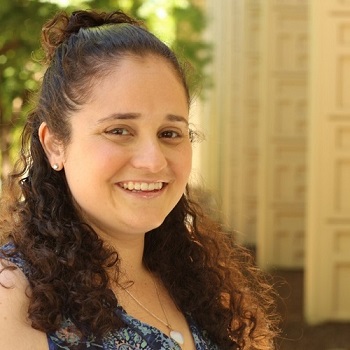 Jessica “Jessi” Gold, MD, MS
Jessica “Jessi” Gold, MD, MS
Assistant Professor
Department of Psychiatry
Washington University in St. Louis
Covid-19 has had a tremendous impact on healthcare workers, from the day-to-day work environment, to increased risk for infection, to their mental health. This grand rounds will focus on what we know so far about the mental health of frontline workers prior to and during COVID-19, and, how that, when put into context with what we know from past pandemics, can allow us to predict the possible mental health aftermath and risk factors for worsening outcomes. We will talk about the role of the institution in helping prepare for these outcomes as the pandemic becomes a marathon and not a sprint. And, as Dr. Gold is a very avid twitter user, this grand rounds will have a specific focus on what individuals can do to advocate for themselves and their colleagues using social media.
Learning Objectives:
- Describe what we know so far about the mental health of frontline workers prior to and during COVID-19
- Summarize the literature from past pandemics regarding the possible mental health aftermath and risk factors for worsening outcomes
- Discuss specifically what individuals can do to advocate for mental health of healthcare workers, focusing on social media (twitter)
- Examine the role of institutions in promoting long-term change
Jessica (“Jessi”) Gold, MD, MS, is an Assistant Professor in the Department of Psychiatry at Washington University in Saint Louis School of Medicine. She splits her clinical time between the Habif Health and Wellness Center and outpatient psychiatry at Barnes Jewish Hospital. She also teaches and mentors students and trainees, and is a regular writer for many media outlets.
Dr. Gold is a graduate of the University of Pennsylvania with a B.A. and M.S in Anthropology and a graduate of the Yale School of Medicine. She completed her residency training in Adult Psychiatry at Stanford University where she served as chief resident from 2017-2018. She has received numerous awards and accolades for her many contributions in the areas of mental health and psychiatry. She is a nationally recognized expert and speaks at national conferences, is interviewed regularly for news outlets, and consults for publishing and media.
Dr. Gold’s areas of interest are in college mental health, women’s mental health and gender equity, physician wellness, medical education, and the between popular media, stigma, and psychiatry. While she has published frequently in the more “traditional” methods of research papers and academic publications, she has also enjoyed teaching about mental health topics and decreasing stigma through writing for popular press outlets. She has been featured in, among others, Self, InStyle, Glamour, and the HuffPost. Some of her favorite articles have included writing about Judge Aquilina’s handling of the Larry Nassar case and its importance for survivors, educating about how to prepare for psychotherapy, and writing first person accounts of sexual harassment in healthcare for the InStyle launch of TIME’S UP Healthcare. Through her advocacy, she has forged connections with other inspirational women in medicine that led to many collaborations on popular media, from interviews, to podcasts, to articles. Two such examples include her interview of New York Time’s Best Selling Author, Dr. Jen Gunter, about her book for InStyle, and writing a piece on the illusory truth effect in the false link between gun violence and mental illness for TIME with Dr. Megan Ranney. It also led to the formation of TIME’S UP Healthcare, for which she serves on the steering committee and is a founding member.
In addition to her writing, Dr. Gold has presented on media as a tool for advocacy, leadership, and a way to combat misinformation nationally. She is very active on social media, particularly twitter (@drjessigold), and was named one of Medscape’s top 20 physician influencers on social media in 2019. She believes in using this medium to connect with and educate her patients on issues surrounding psychiatry and other mental health topics and to put a face to psychiatry that can help destigmatize and humanize the field.
Heather C. Abercrombie, Ph.D. | "NEUROCOGNITIVE SENSITIVITY TO CORTISOL IN DEPRESSION"
NEUROCOGNITIVE SENSITIVITY TO CORTISOL IN DEPRESSION
AUGUST 23 @ 12:00 PM – 1:15 PM
WisPIC Commons Room 1616
6001 Research Park Blvd
Heather C. Abercrombie, Ph.D.
Associate Professor (CHS)
University of Wisconsin-Madison
School of Medicine and Public Health
Department of Psychiatry
Many individuals with depression show “glucocorticoid resistance,” which reflects systemic and cellular insensitivity to the stress-related hormone cortisol. However, the neural and psychological relevance of glucocorticoid resistance is unknown. This is a huge gap in our knowledge, because basic research shows that cortisol has potent yet variable effects on psychological function. Our research addresses this knowledge gap, and we have shown that glucocorticoid resistance is related to negatively biased emotional memory and related neural circuitry. Importantly, we have also shown that cortisol augmentation ameliorates negative memory bias in depression, particularly in glucocorticoid resistant individuals. Taken together, these findings suggest that glucocorticoid resistance is related to core psychological features of depression, and that boosting cortisol signal may be psychologically beneficial in glucocorticoid resistant individuals with depression.
Reading List:
- Neural Signaling of Cortisol, Childhood Emotional Abuse, and Depression-Related Memory Bias
- Alterations in Systemic and Cognitive Glucocorticoid Sensitivity in Depression
- Childhood Emotional Abuse Moderates Associations Among Corticomotor White Matter Structure and Stress Neuromodulators in Women With and Without Depression
Megan Moreno, MD, MSED, MPH | "SOCIAL MEDIA AND ADOLESCENT MENTAL HEALTH"
JANUARY 31 @ 8:00 AM – 9:00 AM
WisPIC Room 1616 | 6001 Research Park Blvd
SOCIAL MEDIA AND ADOLESCENT MENTAL HEALTH
 Megan Moreno, MD, MSED, MPH
Megan Moreno, MD, MSED, MPH
Academic Division Chief of General Pediatrics and Adolescent Medicine Division
Vice Chair of Digital Health
Principal Investigator, SMAHRT
Department of Pediatrics
University of Wisconsin-Madison
Dr. Megan Moreno, MD, MSEd, MPH is the principal investigator (PI) of the Social Media and Adolescent Health Research Team (SMAHRT). Her research team is within the Department of Pediatrics at the University of Wisconsin-Madison. Dr. Moreno is the Academic Division Chief of General Pediatrics and Adolescent Medicine Division, and Vice Chair of Digital Health in the Department of Pediatrics. She is a Professor of Pediatrics and Adjunct Professor of Educational Psychology at the University of Wisconsin-Madison.
Dr. Moreno received her MD degree from George Washington University School of Medicine. She completed a residency in Pediatrics at the University of Wisconsin-Madison, during that time she also completed a Masters Degree in Education. She completed a fellowship in Adolescent Medicine at the University of Washington, during that time she also completed a Masters Degree in Public Health.
Learning objectives:
- Understand the current state of the field regarding associations between social media and adolescent mental health
- Learn two measurement approaches in assessing social media use
- Understand proposed mechanisms for the relationship between social media and adolescent mental health
- Learn about several current national efforts to improve adolescent mental health and technology use
- Consider how to approach social media use with patients
Karen J. Parker, PhD | "ADVANCES IN DETECTING AND TREATING AUTISM"
ADVANCES IN DETECTING AND TREATING AUTISM
NOVEMBER 15 @ 12:00 PM – 1:15 PM
WisPIC Commons Room 1616
6001 Research Park Blvd
 Karen J. Parker, PhD
Karen J. Parker, PhD
Associate Professor
Director, Social Neurosciences Research Program
Department of Psychiatry and Behavioral Sciences
Stanford University School of Medicine
Dr. Parker is an Associate Professor of Psychiatry and Behavioral Sciences at Stanford University where she directs the Social Neurosciences Research Program. Dr. Parker’s research expertise is the biology of social functioning, with a particular interest in oxytocin and vasopressin signaling pathways. Her preclinical research program focuses on developing novel animal models of social impairments; her clinical research program encompasses biomarker discovery and therapeutic testing in patients with autism and other brain disorders.
Dr. Parker received her undergraduate and graduate degrees from the University of Michigan and completed postdoctoral training at Stanford University. Dr. Parker joined the Stanford faculty in 2007. She is an Affiliate Scientist at the California National Primate Research Center, a Member of the American College of Neuropsychopharmacology, and a Kavli Fellow of the US National Academy of Sciences. Dr. Parker’s research program has been supported by multiple funding agencies including the NIH, Simons Foundation, and NARSAD. Dr. Parker serves on the Editorial Board of Psychoneuroendocrinology, and on various national (e.g., NIH and NSF) and international (e.g., Medical Research Council) grant review committees and scientific panels.
Dr. Parker was born in Boulder, CO and grew up in suburban Chicago, IL. She lives in the San Francisco Bay Area with her husband (a high-tech executive), three children, and an Australian shepherd.
Reading List:
- Cerebrospinal Fluid Vasopressin and Symptom Severity in Children with Autism
- A randomized placebo-controlled pilot trial shows that intranasal vasopressin improves social deficits in children with autism
- Arginine vasopressin in cerebrospinal fluid is a marker of sociality in nonhuman primates
- Early Predictors of Impaired Social Functioning in Male Rhesus Macaques
Charles B. Nemeroff, MD, PhD | "Prediction of Disease Vulnerability and Treatment Response in Mood Disorders and PTSD: Personalized Medicine in Psychiatry"
Prediction of Disease Vulnerability and Treatment Response in Mood Disorders and PTSD: Personalized Medicine in Psychiatry
Grand Rounds | Friday, September 13 | 12:00pm
Additional Talk:
Greenfield Memorial Lecture & Reception: Progress in Suicide Prevention
Thursday, September 12 | 5:3opm
WisPIC Commons Room 1616
6001 Research Park Blvd
 Charles B. Nemeroff, MD, PhD
Charles B. Nemeroff, MD, PhD
Chair and Professor of Psychiatry
Director, Institute for Early Childhood Adversity Research
University of Texas at Austin – Dell Medical School
Learning Objectives
- To understand the principles of personalized medicine as applied to mood and anxiety disorders.
- To understand the role of Genome Wide Association Studies (GWAS), candidate gene approaches, transcriptomics, epigenetics, and proteomics in predicting disease treatment response in mood and anxiety disorders.
- To understand the potential for functional brain imaging for predicting treatment response in mood and anxiety disorders.
- To understand the role of gene-environment interactions, particularly early life trauma, in predicting treatment response in mood disorders.
Charles B. Nemeroff, MD, PhD, is a Professor of Psychiatry and Acting Chair of the Department of Psychiatry. He is also Associate Chair of Research, and the Director of the Institute for of Early Life Adversity Research at Dell Medical School at the University of Texas at Austin.
He received his MD and PhD (Neurobiology) degrees from the University of North Carolina UNC) School of Medicine in Chapel Hill, North Carolina. After psychiatry residency training at UNC and Duke University, he held faculty positions at Duke University and was Chair of the Department of Psychiatry and Behavioral Sciences at Emory University for 18 years before relocating to the University of Miami in 2009.
He has served as President of the American College of Psychiatrists (ACP) and the American College of Neuropsychopharmacology (ACNP) and sits on the Scientific Advisory Board and Board of Directors of the American Foundation for Suicide Prevention (AFSP) and the Anxiety and Depression Association of America (ADAA).
He has received a number of research and education awards including the Kempf Award in Psychobiology, the Samuel Hibbs Award, Research Mentoring Award,Judson Marmot Award and the Vestermark Award from the American Psychiatric Association (APA), the Mood Disorders Award, Bowis Award and Dean Award from the ACP and the Julius Axelrod Award for mentoring from the ACNP. He was elected to the Institute of Medicine (now the National Academy of Medicine) of the National Academy of Sciences in 2002.
He has been named Alumnus of the Year from the University of North Carolina (UNC) and from the UNC Medical School. He received the Doctorate Honoris Causa from Maimonides University in Buenos Aires in 2015.
His research has focused on the pathophysiology of mood and anxiety disorders with a focus on the role of child abuse and neglect as a major risk factor. He has also focused on the role of mood disorders as a risk factor for major medical disorders including heart disease, diabetes and cancer. He has published more than 1100 research reports and reviews.
He has served on the Mental Health Advisory Council of NIMH and the Biomedical Research Council for NASA. He is the co-editor in chief (with Alan F. Schatzberg, MD.) of the Textbook of Psychopharmacology, published by the APA Press, now in its Fifth Edition.
His research is currently supported by grants from the NIH.
Reading List:
1. The Holy Grail of Psychiatry (2015) 81-89
2. Understanding Depression – Contemporary Issues (2017) 21, 245-261
3. Psychosomatic Medicine (2014) 76, 445-451
Anna Ratzliff, MD, PhD | "IMPLEMENTING COLLABORATIVE CARE: TRANSLATION FROM RESEARCH TO REAL WORLD"
IMPLEMENTING COLLABORATIVE CARE:
TRANSLATION FROM RESEARCH TO REAL WORLD
JUNE 28 @ 12:00 PM – 1:15 PM
WisPIC Commons Room 1616
6001 Research Park Blvd
 Anna Ratzliff, MD, PhD
Anna Ratzliff, MD, PhD
Associate Professor
Depression Therapy Research Endowed Professorship
Director, AIMS Center
Director, UW Integrated Care Training Program
Learning Objectives:
1) List common barriers and facilitators to collaborative care implementation.
2) Describe five phases to implementation of collaborative care.
3) Name common factors influencing the sustainability of collaborative care.
This lecture will provide a brief overview of the collaborative care model (CoCM) and review current thinking about implementation of this approach to deliver mental health treatment in primary care settings. An approach to the five phase of implementation will be discussed including common barriers and facilitators.
Dr. Anna Ratzliff is a national expert on collaborative care and specifically, on training teams to implement and deliver mental health treatment in primary care settings. Her passion for translating complex research ideas into practical real-world applications began when she received her MD and PhD in Anatomy and Neurobiology as part of the Medical Scientist Training Program at the University of California at Irvine. She currently is an Associate Professor in the Department of Psychiatry and Behavioral Sciences at the University of Washington where she has developed expertise in suicide prevention training, mental health workforce development, adult learning best practices, and mentorship. Dr. Ratzliff is the Director of the AIMS Center (Advancing Integrated Mental Health Solutions), is the Director of the UW Integrated Care Training Program for residents and fellows, and leads a national collaborative care training program for the American Psychiatric Association’s Transforming Clinical Practices Initiative grant. For more information on collaborative care please visit the AIMS Center Website (aims.uw.edu), the UW Integrated Care Training Program (ictp.uw.edu).
Reading List:
- Financing for Collaborative Care – A Narrative Review
- Effective Implementation of Collaborative Care for Depression: What is Needed?
- Sustainability of collaborative care management for depression in primary care settings with academic affiliations across New York State
- Tele-Behavioral Health, Collaborative Care, and Integrated Care: Learning to Leverage Scarce Psychiatric Resources Over Distance, Populations, and Time
Boris Birmaher, MD | "PREDICTING THE DEVELOPMENT OF BIPOLAR DISORDER AND MOOD RECURRENCES – TOWARD PERSONALIZED PSYCHIATRY"
PREDICTING THE DEVELOPMENT OF BIPOLAR DISORDER AND MOOD RECURRENCES – TOWARD PERSONALIZED PSYCHIATRY
*** Part of the Briskey Family Bipolar Lecture Series ***
APRIL 19 @ 12:00 PM – 1:15 PM
WisPIC Commons Room 1616
6001 Research Park Blvd
 Boris Birmaher, MD
Boris Birmaher, MD
Endowed Chair in Early Onset Bipolar Disease and Professor of Psychiatry
Director, Child and Adolescent Bipolar Spectrum Services
Co-Director, Psychiatry Research Pathway Program
University of Pittsburgh
Learning objectives:
- To describe the prodromal symptoms of bipolar disorder
- To describe the course and outcome of bipolar disorder in youth and the factors associated with increases risk for recurrences
- To describe the use of “risk calculators” to predict “personalized” risk to develop bipolar disorder as well as the risk of recurrences.
Dr. Birmaher is the Endowed Chair in Early Onset Bipolar Disease and Professor of Psychiatry at the University of Pittsburgh, School of Medicine and serves as the Co-Director of the Psychiatry Research Pathway program and the Director of the Child and Adolescent Bipolar Spectrum Services. He received his medical degree from Valle University in Cali, Colombia; completed training in general psychiatry at the Hebrew University in Jerusalem, Israel, and child psychiatry at Columbia University, New York.
Dr Birmaher is a leader in the study and treatment of pediatric mood and anxiety disorders. In addition, his research has concentrated in describing the predictors, risk factors, course and treatment of childhood-onset bipolar disorder. Throughout his career, he has served as the Principal, Co-Principal or co-investigator for over 25 federally-sponsored research grants and projects. He has authored or co-authored more than 430 publications, numerous book chapters as well as his own book, New Hope for Children and Teens with Bipolar Disorder. Dr. Birmaher has been the recipient of numerous awards over the years including the Colvin Prize for Outstanding Achievement in Mood Disorders Research in 2013 and the Ittleson Award for Research in Child and Adolescent Psychiatry in 2014. In 2018, he received the Gerald L Klerman Senior Investigator Award and the Lifelong Fellow Award from the American Psychiatric Association. For four years and until 10/2018 he was the Program Chair of the American Academy of Child and Adolescent Psychiatry and recently was named Counselor-At-Large of the same association. Through his research, clinical and mentoring activities, Dr. Birmaher has increased our understanding of the risk factors for mood and anxiety disorders, developed and implemented innovative treatments to improve the lives of patients and their families, and trained the next generation of educators, clinicians and researchers.
Reading List:
- Assessment of a Person-Level Risk Calculator to Predict New-Onset Bipolar Spectrum Disorder in Youth at Familial Risk
- Longitudinal Trajectories and Associated Baseline Predictors in Youths With Bipolar Spectrum Disorders
- A Risk Calculator to Predict the Individual Risk of Conversion From Subthreshold Bipolar Symptoms to Bipolar Disorder I or II in Youth
Conor Liston, MD, PhD | "NEUROIMAGING BIOMARKERS FOR DIAGNOSING NEUROPHYSIOLOGICAL SUBTYPES OF DEPRESSION AND PREDICTING TREATMENT RESPONSE"
NEUROIMAGING BIOMARKERS FOR DIAGNOSING NEUROPHYSIOLOGICAL SUBTYPES OF DEPRESSION AND PREDICTING TREATMENT RESPONSE
MARCH 8 @ 12:00 PM – 1:15 PM
WisPIC Commons Room 1616
6001 Research Park Blvd
Conor Liston, MD, PhD
Assistant Professor of Neuroscience
Brain and Mind Research Institute
and Department of Psychiatry
Weill Cornell Medicine
Conor Liston, MD, PhD is an Associate Professor of Neuroscience and Psychiatry in the Feil Family Brain and Mind Research Institute and the Department of Psychiatry at Weill Cornell Medicine. The long-term goals of his research program are to define mechanisms by which prefrontal cortical brain circuits support learning, memory, and motivation, and to understand how these functions are disrupted in depression, addictions, and other stress-related psychiatric disorders. To this end, experiments in his lab integrate optogenetic tools and genetically encoded calcium indicators with two-photon imaging and functional MRI, and his team is actively developing new methods for quantifying prefrontal cortical microcircuit dynamics in genetically defined neuronal subtypes. They are also developing novel neuroimaging tools for informing psychiatric diagnosis in human populations and predicting treatment response to transcranial magnetic stimulation (TMS) and other neurostimulatory antidepressant interventions.
Dr. Liston graduated summa cum laude from Harvard College in 1998, and received his PhD and MD from The Rockefeller University and Weill Cornell Medicine in 2007 and 2008, respectively, where he was supported by a Paul and Daisy Soros Fellowship for New Americans. He subsequently completed his residency in psychiatry at NewYork–Presbyterian Hospital and postdoctoral training at Stanford University. He returned to Weill Cornell as an Assistant Professor in 2014. His research has been recognized with awards from the Klingenstein-Simons Foundation Fund, the Rita Allen Foundation, the Dana Foundation, the Doris Duke Charitable Foundation, and the One Mind Institute. Dr. Liston is also a clinically active psychiatrist specializing in the management of treatment-resistant mood disorders.
Reading List:
1.Circadian glucocorticoid oscillations promote learning-dependent synapse formation and maintenance
2.Resting-state connectivity biomarkers define neurophysiological subtypes of depression
Melissa DelBello, MD, MS | "Neuropharmacology of Bipolar Disorder in Youth"
 Melissa DelBello, MD, MS
Melissa DelBello, MD, MS
Friday, November 30, 2018
Neuropharmacology of Bipolar Disorder in Youth
*** Part of the Briskey Family Bipolar Lecture Series ***
Melissa Delbello, MD, MS, has served as professor and chair of the Department of Psychiatry and Behavioral Neuroscience since 2014. She joined the University of Cincinnati College of Medicine faculty in 2000 as an assistant professor of psychiatry and pediatrics. Dr. DelBello has served in several leadership roles in the Department of Psychiatry and Behavioral Neuroscience, including vice chair of clinical research since 2007 and co-director of the Division of Bipolar Disorders Research since 2004. She has also been co-director of the Mood Disorders Center at the UC Gardner Neuroscience Institute. A nationally recognized expert on child and adolescent mood disorders, Dr. DelBello has lectured and published extensively on bipolar disorder and served as principal or co-investigator of several NIH grants. She has been a member of the Neural Basis of Psychopathology, Addictions and Sleep Disorders Study Section of the Center for Scientific Review at the National Institutes of Health since 2009, most recently serving as chairperson for a term running from July 2012 through June 2014. Since 2012 she has chaired the Research Committee of the American Academy of Child and Adolescent Psychiatry. At UC Medical Center, she has served as medical director of the Resident Mood Medication Clinic since its launch in September 2013. She is co-director of the Mood Disorders Program at Cincinnati Children’s Hospital Medical Center. Dr. DelBello is a fellow of the American Academy of Child and Adolescent Psychiatry and also holds membership in the American Psychiatric Association, International Society for Bipolar Disorders and American College of Neuropsychopharmacology. A native of New York City, Dr. DelBello received her bachelor of science degree with honors from Cornell University and her medical degree with honors from the University of Rochester School of Medicine. She completed residencies in psychiatry at Cornell Medical Center (1995-96) and the UC College of Medicine (1996-98). In addition, she holds a master’s in epidemiology and biostatistics from UC.
Reading List:
- The International Society for Bipolar Disorders Task Force report on pediatric bipolar disorder: Knowledge to date and directions for future research.
- Prediction of lithium response in first-episode mania using the LITHium Intelligent Agent (LITHIA): Pilot data and proof-of-concept.
- Neurofunctional Differences Among Youth With and at Varying Risk for Developing Mania.
Daniel Pine, MD | "Using Neuroscience to Inform Clinical Thinking in Pediatric Anxiety"
Daniel Pine, MD
Thursday, September 13
Using Neuroscience to Inform Clinical Thinking in Pediatric Anxiety
*** Dr. Pine will also be presenting the Greenfield Memorial Lecture on Wednesday, September 12th from 5:30-7pm***
Dr. Daniel Pine is Chief, Section on Development and Affective Neuroscience, in the National Institute of Mental Health Intramural Research Program. Dr. Pine moved to this position in 2000, after 10 years of training, teaching, and research at Columbia University. Since graduating from medical school at the University of Chicago, Dr. Pine has been engaged continuously in research on pediatric mental disorders, as reflected in more than 500 peer-reviewed papers. Currently, his group examines the degree to which pediatric mood and anxiety disorders are associated with perturbed neural circuitry function. Dr. Pine served as the Chair of the Psychopharmacologic Drug Advisory Committee for the Food and Drug Administration, Chair of the Child and Adolescent Disorders Work Group for the DSM-5 Task Force, and President of the Society of Biological Psychiatry. He is a member of the Institute of Medicine of the National Academy of Sciences and has received many other awards.
Reading List:
Andrew H. Miller, MD | "Inflammation and Depression: Mechanisms, Mediators and Therapeutic Implications"
 Andrew H. Miller, MD
Andrew H. Miller, MD
Friday, August 3, 2018
Inflammation and Depression: Mechanisms, Mediators and Therapeutic Implications
Andrew Miller, MD is William P. Timmie Professor of Psychiatry and Behavioral Sciences at the Emory University School of Medicine in Atlanta, Georgia. He is also the Vice Chair for Research in the Department of Psychiatry and Behavioral Sciences and Director of the Emory Behavioral Immunology Program. Finally, Dr. Miller is the co-leader of the Cancer Prevention and Control Research Program Research at the Winship Cancer Institute. Dr. Miller is an internationally recognized leader in the area of brain-immune interactions as they relate to depression in medically healthy as well as medically ill patients including patients with cancer. His work has demonstrated that during immune activation, inflammatory cytokines can access the brain and interact with the metabolism of dopamine and glutamate, while altering neurocircuits in the brain relevant to motivation and reward as well as anxiety and alarm. Dr. Miller has also studied the impact of cytokines on neuroendocrine regulation and sleep including the study of the specific signal transduction pathways involved. Additionally, Dr. Miller and his group conducted the first clinical trial examining the efficacy of a cytokine antagonist for the treatment of depression. He has produced over 200 scholarly publications and edited a book entitled Depressive Disorders and Immunity. Dr. Miller’s research awards include the Curt Richter Award from the International Society of Psychoneuroendocrinology and the Norman Cousins Award from the Psychoneuroimmunology Research Society. Aside from his research endeavors, Dr. Miller has won numerous teaching and mentoring awards and is a Board Certified Psychiatrist and past examiner for the American Board of Psychiatry and Neurology.
Reading List:
Bunmi O. Olatunji, PhD | "The Psychopathology of Disgust in Obsessive-Compulsive Disorder"
 Bunmi O. Olatunji, PhD
Bunmi O. Olatunji, PhD
Friday, June 8, 2018
The Psychopathology of Disgust in Obsessive-Compulsive Disorder
Bunmi O. Olatunji, PhD is Professor in the Department of Psychology and Psychiatry at Vanderbilt University where he also serves as the Director of Clinical Training. He is Associate Editor of the Journal of Consulting and Clinical Psychology and currently serves on the editorial boards of Behavior Therapy, International Journal of Cognitive Therapy, Journal of Obsessive-Compulsive and Related Disorders, Psychological Bulletin, Psychological Assessment, and Psychotherapy. He has published more than 160 journal articles and book chapters, and has participated in more than 100 conference presentations. He is co-author of the book “10-minute CBT: Cognitive behavioral interventions for the brief medication visit” published by Oxford Press and co-editor of the book “Disgust and its disorders: Assessment, theory, and treatment” published by the American Psychological Association.
As Director of the Emotion and Anxiety Research Laboratory at Vanderbilt University, his primary research interest involves multilevel examination of cognitive behavioral theory, assessment, and therapy for anxiety disorders. He is currently adopting an experimental psychopathology framework to examine the role of basic emotions, especially disgust, as they relate to the assessment, etiology, and maintenance of anxiety-related disorders. His research has been funded by the National Institute of Health and the Anxiety Disorders Association of America. For his research and professional efforts, he had been the recipient of the American Psychological Association (APA) Division 12 David Shakow Early Career Award for Distinguished Scientific Contributions to Clinical Psychology, the Association for the Advancement of Behavioral and Cognitive Therapies New Researcher Award, and the APA Division 12 Theodore Blau Early Career Award for Distinguished Professional Contributions to Clinical Psychology. He was also the recent recipient of the APA Distinguished Scientific Awards for an Early Career Contribution to Psychology. This award recognizes excellent psychologists who are at early stages of their research careers.
Mary Phillips, MD, MD | "Multimodal Neuroimaging - Neural Circuits and Mood Disorders: Toward Neural Biomarkers for Novel Interventions"
 Mary Phillips, MD, MD
Mary Phillips, MD, MD
Friday, April 27, 2018
Multimodal Neuroimaging – Neural Circuits and Mood Disorders: Toward Neural Biomarkers for Novel Interventions
Mary Phillips, MD, MD is the Pittsburgh Foundation-Emmerling Endowed Chair in psychotic Disorders, and Professor in Psychiatry and Clinical and Translational Science in the University of Pittsburgh. She heads the Clinical and Translational Affective Neuroscience Program in the Department of Psychiatry at the University of Pittsburgh. Dr. Phillips’ research focuses on using multimodal neuroimaging techniques to elucidate functional and structural abnormalities in emotion processing, reward processing and emotional regulation circuitries that are associated with specific psychiatric disorders, and symptom dimensions in individuals with mood and anxiety disorders. Her research also focuses on identifying the neurodevelopmental trajectories in these circuitries that are associated with the development of such disorders in youth and infants, and the extent to which these neuroimaging techniques can identity biomarkers reflecting underlying pathophysiologic processes that denote future risk for these disorders in as yet unaffected youth. Her more recent work examines how neuromodulation techniques can be targeted on identified neural biomarkers of mood disorders, as a step toward developing new interventions for individuals with these disorders. She works in collaboration with basic neuroscientists in translational studies of neural circuitry abnormalities in these disorders.
Dr. Phillips trained in Medicine at Cambridge University, UK, and in Psychiatry at the Maudsley Hospital and the Institute of Psychiatry, King’s College, University of London, UK. She joined the Department of Psychiatry at the University of Pittsburgh as a full-time faculty member in July, 2005. In 2005, Dr. Phillips became a member of the American College of Neuropsychopharmacology; in 2006, she was awarded the Nellie Blumenthal Independent Investigator Award by the Brain and Behavior Research Foundation (National Alliance for Research in Schizophrenia and Depression); in 2012, became a Fellow of the American College of Neuropsychopharmacology; and, in 2014, she became a member of the American Society of Clinical Investigation and received the Joel Elkes Research Prize of the American College of Neuropsychopharmacology. In 2018, she became President Elect of the Society of Biological Psychiatry, has served on the Membership Committee of the American College of Neuropsychopharmacology, and on Program Committees of both the Society of Biological Psychiatry and the American College of Neuropsychopharmacology. In 2018, she was elected to the Scientific Council of the Brain and Behavior Research Foundation, and received the Brain and Behavior Research Foundation Colvin Prize for research in mood disorders in 2018.
Dr. Phillips has received research funding awards from the National Institute of Mental Health and the Brain and Behavior Research Foundation in the U.S., and the Medical Research Council and the Wellcome Trust in the UK. Dr. Phillips has mentored over 60 junior investigators, including being mentor to 11 K awardees, has extensive national and international collaborations, and has authored or co-authored more than 300 publications.
Diego Pizzagalli, PhD | "The Neuroscience of Major Depression: Focus on Anhedonia"
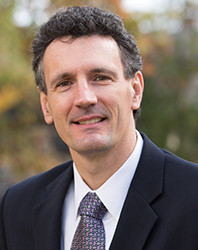 Diego Pizzagalli, PhD
Diego Pizzagalli, PhD
Friday, March 9, 2018
The Neuroscience of Major Depression: Focus on Anhedonia
Diego Pizzagalli, PhD received his M.A. (1995) and Ph.D. (1998) from the University of Zurich, Switzerland and did post-doctoral work at University of Wisconsin, Madison. From 2002-2010 he was a faculty member in the Department of Psychology at Harvard University, where he served as the John and Ruth Hazel Associate Professor of the Social Sciences. In 2010, he was recruited to McLean Hospital to serve as the Founding Director of the newly established Center for Depression, Anxiety and Stress Research (CDASR), as well as the Director of the McLean Imaging Center (MIC). Since September 2015, he also serves as the Director of Research for the Division of Depression and Anxiety. He is currently a Professor of Psychiatry at Harvard Medical School.
The main goals of his research are to improve our understanding of the psychological, environmental, and neurobiological factors associated with mood disorders, particularly major depression. To this end, he integrates behavioral, electrophysiological, neuroimaging, and, more recently, molecular genetics approaches to investigate three putative endophenotypes of depression: anhedonia (loss of pleasure), increased stress sensitivity, and negative processing biases.
Dr. Pizzagalli has published over 150 papers and chapters and serves on the editorial board of 10 journals. Among several awards, he received the Distinguished Scientific Award for an Early Career Contribution to Psychophysiology from the Society for Psychophysiological Research (2006), the Early Career Award from the EEG and Clinical Neuroscience Society (2007), the Anne M. Cataldo Excellence in Mentoring Award from McLean Hospital (2015), a MERIT award from the National Institute of Mental Health (2018), and The Stuart T. Hauser, M.D. PhD. Mentorship Award in Psychiatry from Harvard Medical School (2018).
Kerry J. Ressler, MD, PhD | "Understanding Fear and PTSD: From Cells and Circuits to Behavior"
 Kerry J. Ressler, MD, PhD
Kerry J. Ressler, MD, PhD
Friday, January 12, 2018
Understanding Fear and PTSD: From Cells and Circuits to Behavior
Kerry J. Ressler, MD, PhD is the James and Patricia Poitras Chair in Psychiatry, and Chief of the Division of Depression and Anxiety Disorders at McLean Hospital, affiliate of the Harvard Medical School. Previously he spent 18 years at Emory University and Grady Memorial Hospital in Atlanta, where he led the Grady Trauma Project, a study focused on understanding the Psychology, Biology, and Trauma-Related factors contributing to Posttraumatic Stress Disorder, Substance Abuse and Violence in over 10,000 participants from urban Atlanta. He is also the 2018 President-Elect of the US Society for Biological Psychiatry. He received his Bachelor of Science degree in molecular biology from M.I.T., and his M.D./Ph.D. from Harvard Medical School. In 1992 at Harvard, he was the first student of Dr. Linda Buck (Nobel Prize, 2004), helping to identify the molecular organization of the olfactory receptor system. Dr. Ressler is a previous Investigator of the Howard Hughes Medical Institute and a current member of the National Academy of Medicine. His work focuses on translational research bridging molecular neurobiology in animal models with human genetic research on emotion, particularly fear and anxiety disorders. He has published over 230 manuscripts ranging from basic molecular mechanisms of fear processing to understanding how emotion is encoded in the brain across animal models and human patients.
- An Integrated Neuroscience Perspective on Formulation and Treatment Planning for Posttraumatic Stress Disorder: An Educational Review
- Implications of memory modulation for post-traumatic stress and fear disorders
- Bridging the Gap: Towards a cell-type specific understanding of neural circuits underlysing fear behaviors
Carlos Schenck, MD | "What Should Psychiatrists Know About the Parasomnias?"
 Carlos Schenck, MD
Carlos Schenck, MD
Monday, December 4, 2018
What Should Psychiatrists Know About the Parasomnias?
Carlos H. Schenck was born in New York City in 1951, received his B.A. degree from the Johns Hopkins University in 1972, and his M.D. degree from the State University of New York at Buffalo in 1976. He completed a Psychiatry Residency at the University of Minnesota in 1980, where he is currently a Professor and senior staff psychiatrist at the Hennepin County Medical Center in Minneapolis. Since 1982 he has been on staff at the Minnesota Regional Sleep Disorders Center. In 1985-7 Dr. Schenck and colleagues reported on a new category of dream-enacting Parasomnia that they named REM sleep behavior disorder (RBD). In 1996 Dr. Schenck and colleagues first reported that RBD commonly heralds future parkinsonism, thus initiating a major international clinical and basic research effort in this area. In 2009 Dr. Schenck was the Founding President of the International REM Sleep Behavior Disorder Study Group that has held yearly research symposia and that has published collaborative, multicenter, peer-reviewed publications.
Dr. Schenck and colleagues also identified and named Sleep Related Dissociative Disorder in 1989; Sleep Related Eating Disorder in 1991; Status Dissociatus (mixed states of REM sleep, NREM sleep and wake in 1991; Epic Dream Disorder in 1995; Parasomnia Overlap Disorder (RBD linked comorbid with the Non-REM sleep parasomnias Sleepwalking and Sleep Terrors) in 1997;and formulated the first classification of Sexsomnia (abnormal sexual behaviors during sleep) in 2007.
Dr. Schenck and colleague Mark W. Mahowald, M.D. received the “William C. Dement Academic Achievement Award” from the American Academy of Sleep Medicine (AASM) in June 2007, for discovering RBD and other parasomnias. Drs. Schenck and Mahowald received the Sleep Research Society “Outstanding Scientific Achievement Award” in June 2010 for their discovery of RBD and other parasomnias, and also for identifying the strong link of RBD with parkinsonian disorders and with narcolepsy-cataplexy. Drs. Schenck and Mahowald received the “Sleep Science Award” from the American Academy of Neurology (AAN) during the annual AAN meeting in Boston on April 24, 2018 for their discovery of RBD and for the strong link of RBD with parkinsonian disorders.
Drs. Schenck and Mahowald identified and described the medical-legal entities “Parasomnia Pseudo-Suicide” and “Parasomnia With (Intermittent) State-Dependent Danger as a Non-Insane Automatism,” and have published extensively on the medical-legal aspects of Parasomnias. They were the founders, along with colleague Michel Cramer Bornemann, M.D. of Sleep Forensic Associates in 2007.
Dr. Schenck was Co-Chair of the Parasomnias Committee for The International Classification of Sleep Disorders-2nd Edition (ICSD-2) (AASM, 2005), and was a member of the Parasomnias Committee for the ICSD-3 published in March 2014. He is an Associate Editor of the journal Sleep, he is on the Editorial Board of the journal Sleep Science, and he is on the Executive Committee of the World Association of Sleep Medicine and the World Sleep Society. The August 2013 issue of the journal Sleep Medicine was devoted exclusively to RBD original research and review articles written by basic scientists and clinicians, with Dr. Schenck serving as a Guest Co-Editor of that issue. Dr. Schenck is the Editor of the first textbook on RBD (with 46 chapters written by clinical and basic science investigators) that will be published by Springer in early 2018.
Dr. Schenck’s first book was “Paradox Lost: Midnight in the Battleground of Sleep and Dreams” (Extreme-Nights, LLC, Minneapolis, MN, 2005). His second book was “Sleep: The Mysteries, The Problems, and The Solutions (Penguin/Avery Press, 2007). On June 3, 2011 Dr. Schenck was one of three participants in the symposium, “The Mind After Midnight: Where Do You Go When You Go To Sleep?” that took place during the 4th annual World Science Festival in New York City.
Dr. Schenck has appeared regularly on national television and radio news programs, such as CNN, ABC-TV (20/20, Good Morning America, Nightline, Prime Time [Medical Mysteries Series]), the Oprah Winfrey Show (1997, 2008), CBS-TV, NBC-TV “48 Hours”, Discovery Channel, Learning Channel, National Public Radio etc. Dr. Schenck’s research has been described in articles appearing in the New York Times, Wall Street Journal, Newsweek, National Geographic Magazine, Associated Press, US News & World Report, Reader’s Digest, and other national and international (International Herald Tribune, Stern magazine, China Times) publications.
- Sleep and Sex: What Can Go Wrong? A Review of Literature on Sleep Related Disorders and Abnormal Sexual Behaviors and Experiences
- Restless Nocturnal Eating: A Common Feature of Willis-Ekbom Syndrome (RLS)
- REM Sleep Behavior Disorder: Clinical, Developmental, and Neuroscience Perspectives 16 Years After its Formal Identification in SLEEP
- Rapid Eye Movement Sleep Behavior Disorder and Neurodegenerative Disease
Clint Kilts, PhD | "The Acquired Brain States of Human Drug Addiction"
Friday, November 10, 2018
The Acquired Brain States of Human Drug Addiction
Clint Kilts, PhD received his postgraduate trainin in psychopharmacology and neurochemistry in the Department of Pharmacology and Toxicology at Michigan State University. He continued his training in neuropharmacology, analytical neurochemistry, and human psychopharmacology in the Biological Sciences Research Center at the University of North Carolina. He subsequently joined the faculties of the Departments of Psychiatry and Pharmacology at Duke University where he served as Director of the Clinical Pscyhopharmacology Laboratory. In 1992, Dr. Kilts joined the faculty of the Department of Psychiatry and Behavioral Sciences in the Emory University School of Medicine. At Emory, he served as the Interim Director of the Center for PET and in 2000 became the first Vice Chair for Research for the Department of Psychiatry and Behavioral Sciences. In 2009, he joined faculty in the Department of Psychiatry and Behavioral Sciences in the College of Medicine at the University of Arkansas for Medical Sciences (UAMS). He is the founding director of the Brain Imaging Research Center (BIRC) in the UAMS Psychiatric Research Institute (PRI) and an Associate Director of the PRI. He has a long record of NIH-funded research, most recently in the use of in vivo brain functional, molecular, and connectivity imagingto explore the neural network processing basis of human behavior. With a focus on drug abuse and addiction, he has a clinical research focus on the use of neuroimaging technology to define the brain basis of psychiatric disorders and their treatment. Dr. Kilts received the Wilbur Mills Chair in Alcohol and Drug Abuse prevention in 2014. Additional academic accomplishments relate to organizational research planning, organization, and mentoring. His current goals as Director of the BIRC are to extend magnetic resonance imaging (MRI)-based technology and human neuroscience to areas of clinical problem solving in psychiatry and related disciplines within the PRI and at UAMS.
- Individual Differences in Attentional Bias Associated with Cocaine Dependence Are Related to Varying Engagement of Neural Processing Networks
- Childhood Maltreatment is Associated with a Sex-Dependent Functional Reorganization of a Brain Inhibitory Control Network
- Neural Network Activation During a Stop-signal Task Discriminates Cocaine-dependent From Non-drug-abusing Men
Amit Etkin, MD, PhD | "A Circuits-First Approach to Mental Illness"
 Amit Etkin, MD, PhD
Amit Etkin, MD, PhD
Friday, September 29, 2018
A Circuits-First Approach to Mental Illness
Amit Etkin, MD, PhD is an Associate Professor in the Department of Psychiatry and Behavioral Sciences at Stanford, a member of the Stanford Neurosciences Institute, and an Investigator at the Palo Alto VA. He is trained both as a neuroscientist and psychiatrist. The overarching aim of the Etkin Lab is to understand the neural basis of emotional disorders and their treatment, and to leverage this knowledge to better understand how the brain works and to develop novel treatment interventions. In support of this goal, Dr. Etkin also collaborates with other neuroscientists, engineers, psychologists, physicians, and others at Stanford to establish a new intellectual, scientific, and clinical paradigm for understanding and manipulating human brain circuits in healthy individuals and for treating psychiatric disease.
- Identification of Common Neural Circuit Disruptions in Cognitive Control Across Psychiatric Disorders
- Identification of a Common Neurobiological Substrate for Mental Illness
- Selective Effects of Psychotherapy on Frontopolar Cortical Function in PTSD
- PTSD Psychotherapy Outcome Predicted by Brain Activation During Emotional Reactivity and Regulation
- Causal Interactions Between Fronto-Parietal Central Executive and Default-Mode Networks in Humans
Ryan Herringa, MD, PhD | "Trauma, PTSD, and Neurodevelopment in Youth"
 Ryan Herringa, MD, PhD
Ryan Herringa, MD, PhD
Friday, August 4, 2018
Trauma, PTSD, and Neurodevelopment in Youth
Ryan Herringa, MD, PhD is an Assistant Professor in the Department of Psychiatry at the University of Wisconsin School of Medicine and Public Health. He is a pediatric psychiatrist and neuroscientist whose work explores the neural-substrates of childhood traumatic stress and PTSD. He directs the BRAVE Lab (Building Resilience after Adversity and Violent Events), which seeks to map neuro-developmental trajectories following childhood trauma. Specifically, the BRAVE Lab uses structural and functional neuro-imaging combined with behavioral, physiological, and genetic approaches to develop bio-markers of vulnerability, recovery, and resilience to childhood trauma. Bio-markers of childhood trauma could then be used to improve prevention and intervention strategies in victimized youth. In addition to his research, Dr. Herringa remains active in clinical care and teaching, with specialization in the treatment of youth with trauma-related mental illness.
Subscribe to Grand Rounds Updates
Subscribe to our newsletter to receive updates about Grand Rounds for the University of Wisconsin Psychiatry Department! We’ll keep you informed about upcoming dates, times, and speakers.
Our Grand Rounds committee appreciates your input! If you have suggestions for future speakers, topics, or general feedback for the Grand Rounds committee, please contact Jennifer Noll. We appreciate your input!
Grand Rounds Planning Committee:
- Erri Hewitt, PhD
- Jeanie Jundt, RN, BSN
- Michael Koenigs, PhD, RSS Chair
- Shiri Raphaely, MD
- Art Walaszek, MD
- Amber Sebastian
- Jennifer Noll






